Iconic Pictures that Reveal the Influence of Lucille Ball
There was something sweet about the world of I Love Lucy, and it went deeper than the laughs people enjoyed from the uproarious humor of the show. Though Lucille Ball was an entertainer through and through, not everything she shared with the world was meant to be applauded. Behind the scenes, there was a harsh reality with just as much suffering, discrimination, and heartbreak as there was joy and success.
Lucille Ball was responsible for ushering in the golden age of television. She brought so much joy to the world, but when she didn’t have a script in her hands, the outcome wasn’t always so sweet. It happens so often that the stars on-screen face very harsh realities behind the scenes and these are usually hidden from the public. She was an incredible character on and off screen. This is Lucille Ball’s unscripted reality.
1. The Unforgettable Golden Age of Television
I Love Lucy was a television show from the golden age that is certainly worth remembering. The fiery redhead with a golden smile captured the hearts of Americans and left a legacy of everlasting laughs for future generations. Her comedic talents were an obvious reason for the show’s success. But it was also popular because the show had a lot of heart. It was the kind of show people wanted to watch together.
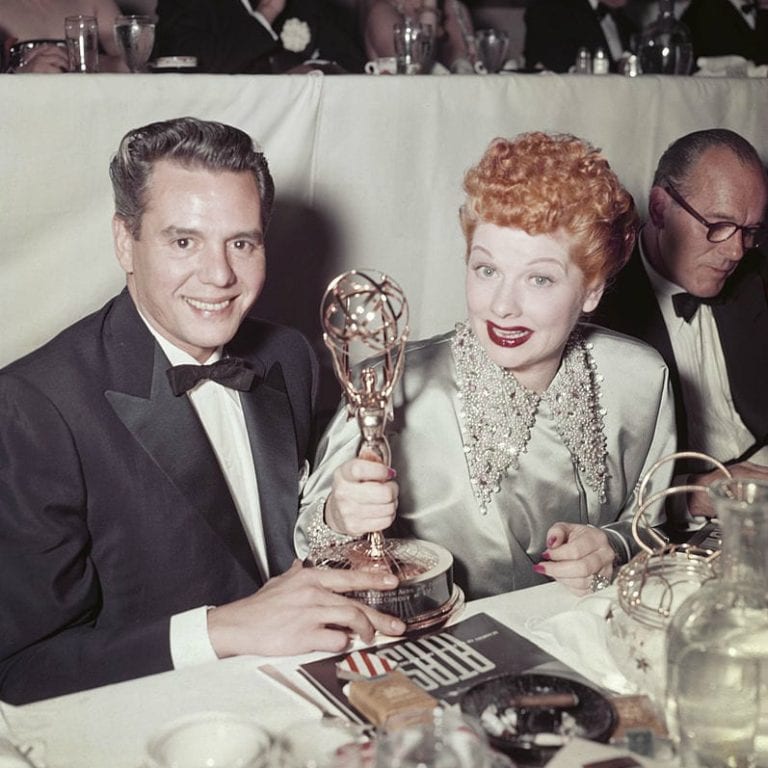
Photo by FPG/Getty Images
Her television appearance inspired viewers and raised the bar for the entertainment business. Though she played herself in the show, who was Lucille Ball in real life? Her life story gave hope to America that, despite all the challenges of life, a happy ending could still be possible. It was received so well that it became the first ever T.V. series to be broadcast as reruns. In other words, it was the first show that people could “binge” long before Netflix was around.
2. Lucy Was a Daddy’s Girl
Lucille Ball was born in Jamestown, New York, on August 6, 1911. The eldest daughter of an electrician father and a young mother, Ball enjoyed her father’s roughhousing. Indeed, it was likely where her aptitude for physical comedy arose. She considered herself a tomboy rather than a sweet little girl. This is translated in her comedic style.
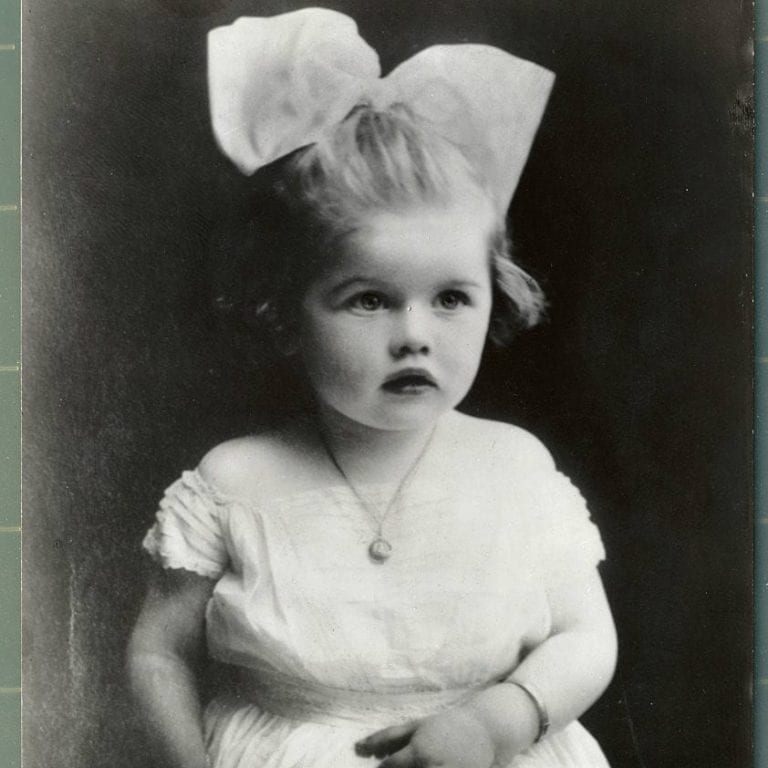
Photo by FPG/Getty Images
As a first time parent, Lucy’s mother struggled to keep up with her energy. To get some rest, she often put a leash on little Lucy while she did chores. Though this sounds rough, Lucy didn’t seem bothered. Before she was four years old, she already knew how to work a crowd. Like so many other comedians, she wanted to make people smile, even in the face of her own tragedies.
3. Butcher’s Store Shows
Lucille loved to run up and down the street between her house and the butcher’s store. Her tendency to wander left her mother very stressed so she struck a deal with the butcher that would allow Lucille to perform at his shop. She made her first appearance as a performer at the butcher’s counter thanks to the arrangement her mother made with the owner of the store. A butcher shop may not sound like a likely place for a little girl to get her start in show business, but it was, in fact, the beginning of a long career.
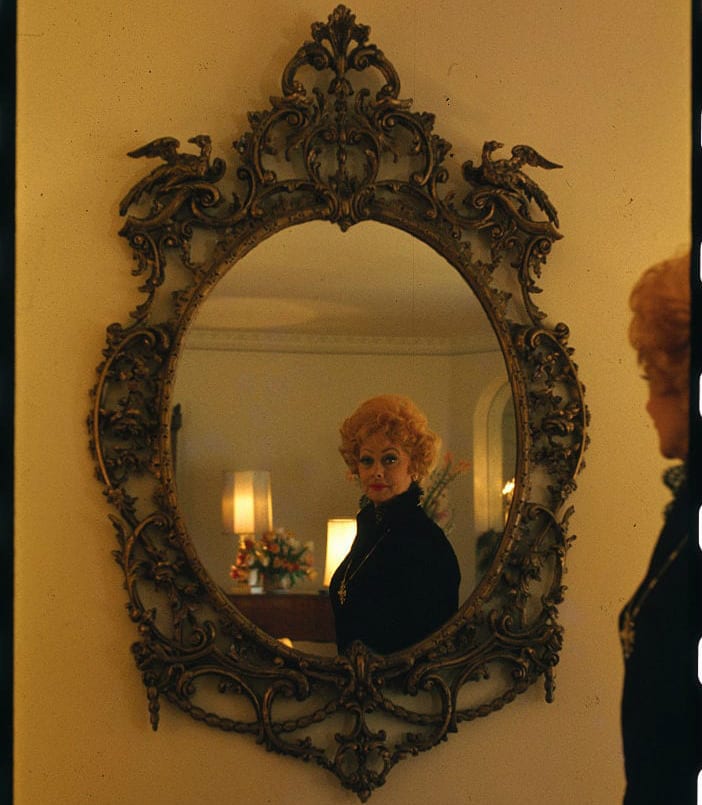
Getty Images
Lucy would twirl and dance at the butcher’s counter to entertain the shop’s customers. Her favorite act was her portrayal of a jumping frog. Her fans would offer her a sweet treat or coins if she stuck out her tongue and croaked. In her autobiography she remembers her first performances fondly. And these were the first of many moments that she performed to put smiles on people’s faces.
4. Lucille Ball’s First Tragedy
Lucille was five years old, and her mother was pregnant with her younger brother when a storm approached their town. Her father worked as a telephone lineman and was dispatched to repair storm-damaged telephone cables in the winter. After this, he developed some serious flu symptoms. What started with a runny nose and cough soon developed into something much worse.
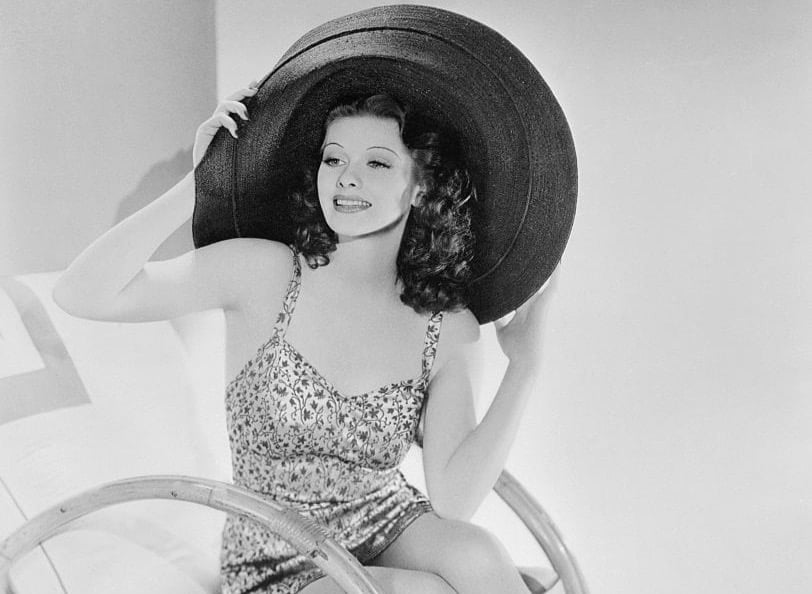
Getty Images
Lucy’s father arrived home from work with a high fever and went straight to bed. His fever worsened, and it turned out he had typhoid. Lucy clearly remembers every moment of this terrible time because her dear father died soon after. She recalls a bird flying into their kitchen window and breaking a picture frame on that day. The image really stuck with the five year old girl and she could not stand to look at pictures of birds ever again after that.
5. Lucy’s Stepfather
Her mother then married Ed Peterson, a Swedish American. At the age of 11, Lucy was excited to have a father figure, but Ed was not interested in that kind of thing. In her memoirs, she wrote, “Ed was never abusive or harsh. However, his presence was enigmatic.” She could never really know what he was thinking or if he was interested in her at all. It was not the fatherly presence she craved since the passing of her father.
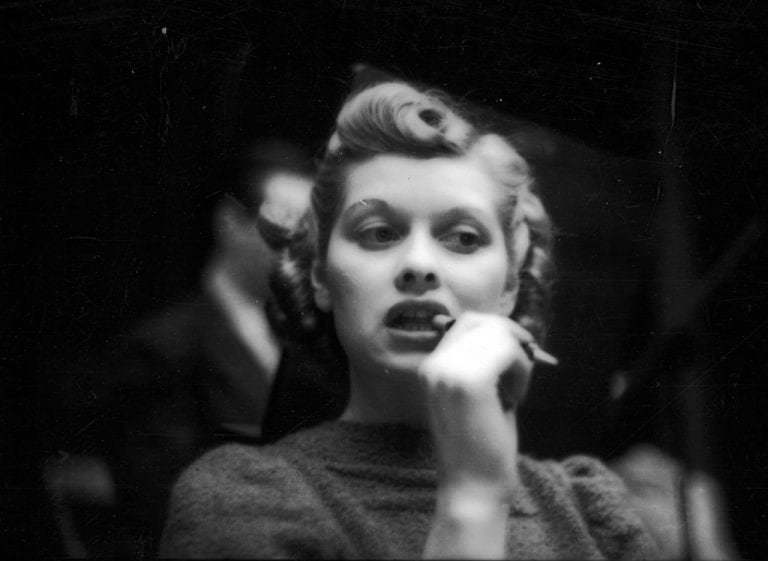
(Photo by Gene Lester/Archive Photos/Getty Images)
Growing up, Ball discovered her true calling: acting. At the age of 15, she persuaded her supportive mother to enroll her at a drama school in New York City. Her mom knew her daughter was bound to be in show business from the energetic shows she had loved to put on since she was very young. It wasn’t easy for her to become a star, but she had the drive to make it through any challenge that came her way.
6. Lucille Didn’t Always Shine
Ball felt nervous on stage, despite being exuberant and passionate. She would get tongue tied and her nerves didn’t let her really express her talents as a performer. That’s when her instructors began to realize that her natural brightness wasn’t shining through. After a while, her mother received a letter from the school with some difficult news.
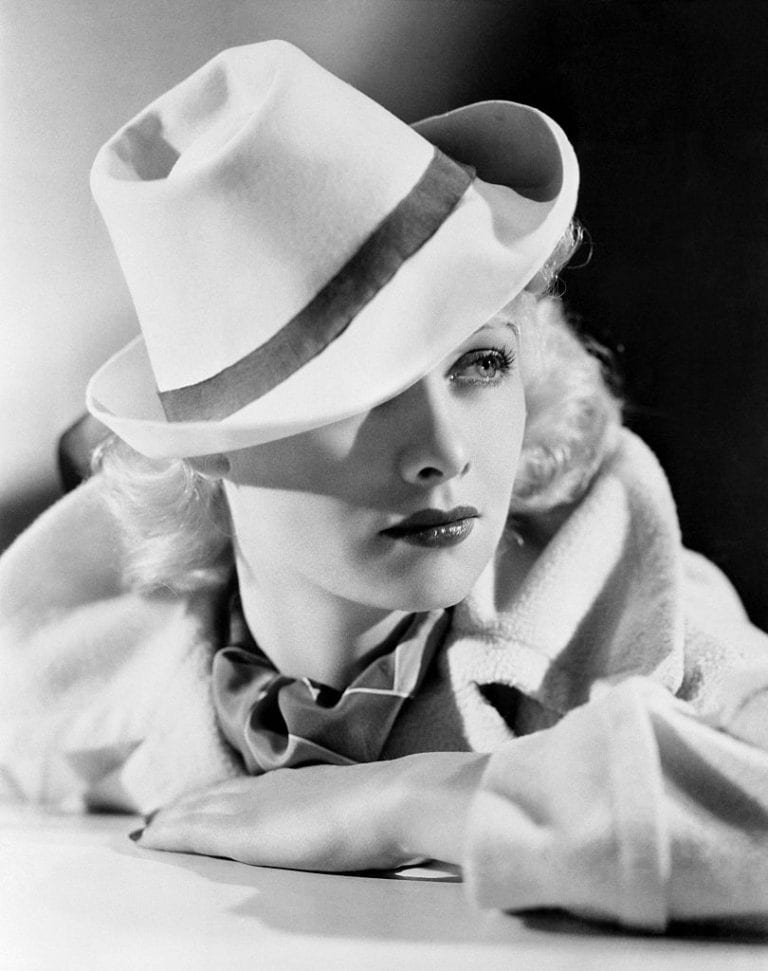
(Getty Images)
A letter from the instructor was handed to Ball’s mother stating that Lucy was wasting time because she was bashful and hesitant to put in her best effort. Despite how hurtful the words were, young Lucy was not ready to give up on her ambitions. She knew she was just intimidated by the stage and by the star of the class, Bette Davis. Nonetheless, she was persistent and knew she had talent worth sharing. She was destined to be on stage.
7. Lucille’s New Identity
After receiving this painful criticism, Ball decided to work as a model in New York. In 1927, she renamed herself “Diane Belmont” and modeled the work of Hattie Carnegie, a fashion designer. She was photogenic, young, and attractive. Likely, her new identity was a way of putting distance between the perceived failure at drama school. Lucille was the wannabe performer but Diane was the successful model.
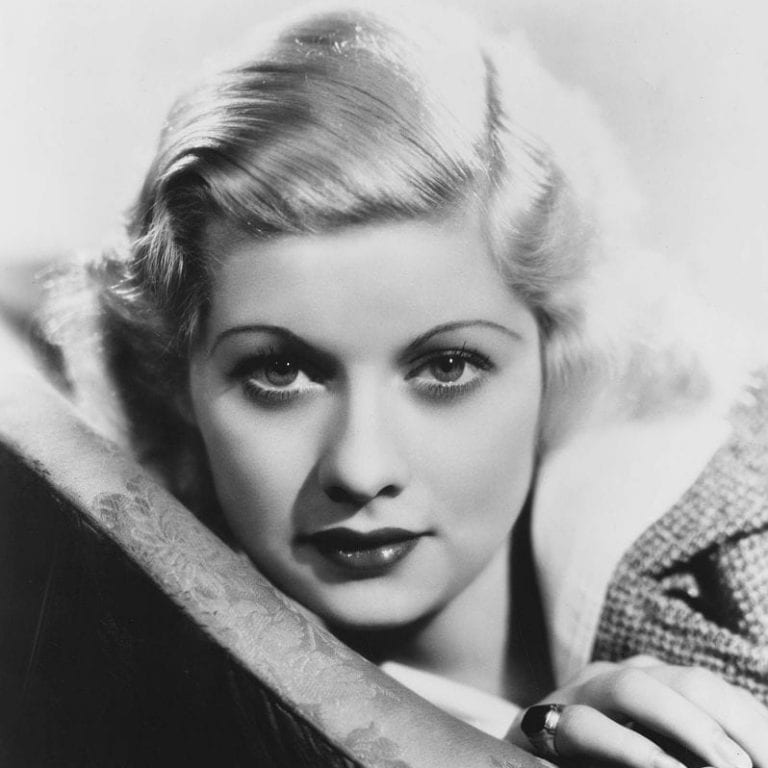
Photo by John Springer Collection/CORBIS/Corbis via Getty Images
Ball developed rheumatoid arthritis in her late teens but continued her modeling career. She felt like she was steadily conquering the world with her newfound confidence. In the process, she abandoned her chestnut brown hair and transformed herself into a blonde stunner. She didn’t allow the arthritis to slow her down because she was determined and had a new sense of confidence from her new identity.
8. Taking Broadway
While she was modeling, Lucille didn’t give up on her dreams of acting. She struggled to balance her modeling and acting careers at the same time. She considered trying her luck as a chorus girl on Broadway, but she had a feeling it would be an utter failure. She got dismissed from four separate shows in the end. Acting coaches and tutors continually criticized her and told her that she didn’t have what it takes to make it big.
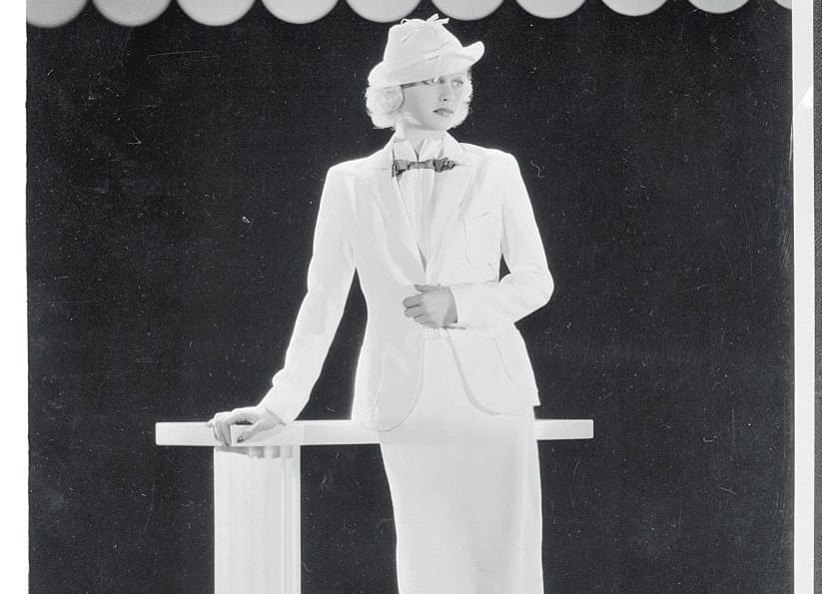
Getty Images
Despite the second wave of criticism, Ball remained steadfast. She had a gut feeling that success was in her future. So, she pushed harder and harder until she was able to force her way into the business. She had her confidence and faith in herself to thank for all the success that she has gained since the very beginning.
9. The End of Her Modeling Career
Ball had a strong feeling she was destined for something big. Her body, however, needed time to recuperate from the frantic pace of her mind. Her body was protesting the arthritis, the fast paced lifestyle, and it didn’t help that she was an avid smoker as well. This combination often gives way to heart disease. Her body finally declared enough was enough after years of being put through the pressures of modeling. She decided to take a hiatus.
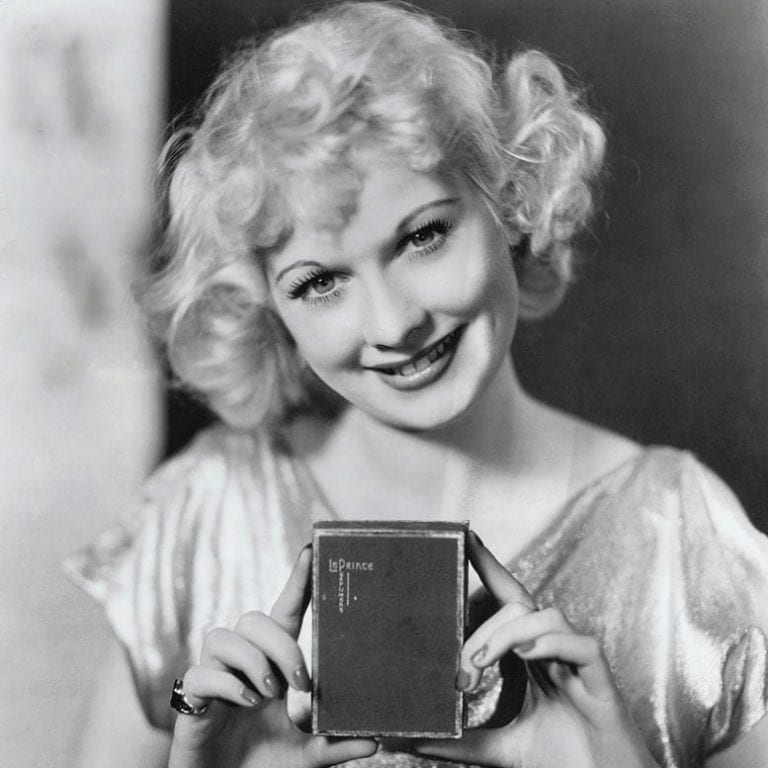
Photo by George Rinhart/Corbis via Getty Images
Despite her health problems, she was eager to get back on her feet. Ball returned to New York two years later, but not as Diane Belmont. She rebranded again, going back to Lucille Ball, the one and only. She’d gotten her first taste of fame, and now she wanted more. And she wanted to do it under her original name, despite what her teachers and coaches had said about her ability to make it.
10. The Doors of Opportunity
She had done some modeling work for department stores and perfume ads, but her first major opportunity came after her hiatus. Lucille got the opportunity to become a Cigarette Girl on the national advertising posters of Chesterfield Cigarettes in 1933. Following that, she was given an opportunity that would propel her to stardom: she was cast in her first acting role.
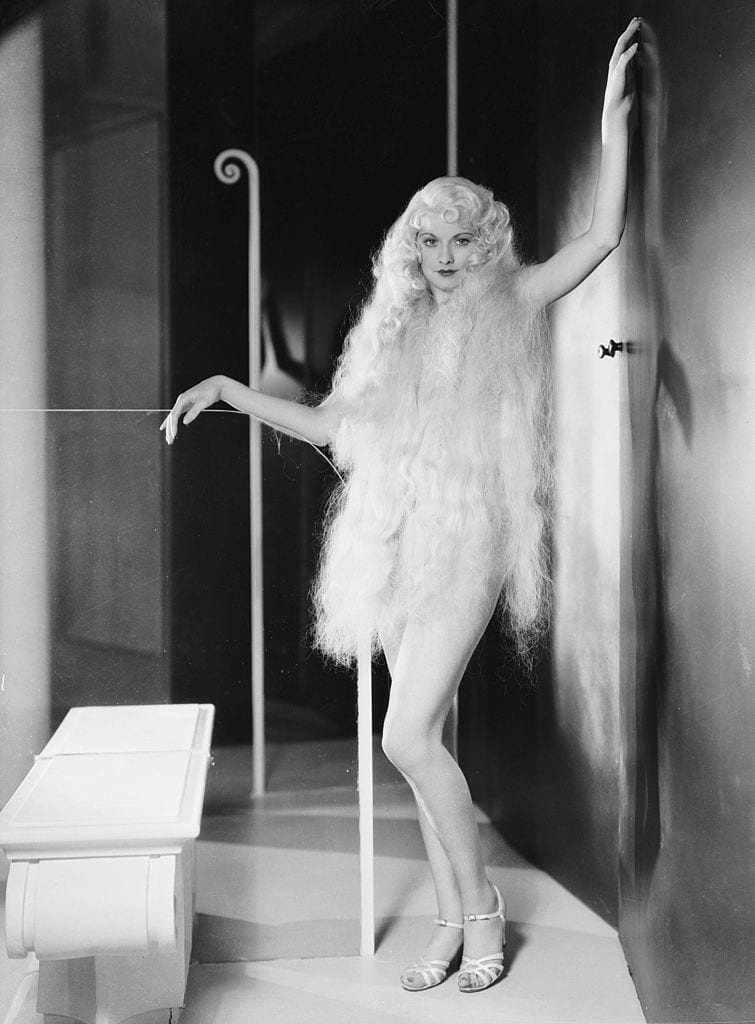
(Photo via John Kobal Foundation/Getty Images)
It was a minor role playing a Goldwyn girl in the film Roman Scandals, but it turned out to be the break she’d been seeking. Through it, she landed a role in The Three Musketeers, directed by Ritz Brothers. Little did Lucille know, this is often how it goes. One job lands you another and soon enough you’re a household name. She showed all those who questioned her abilities just how wrong they were.
11. Lucille Ball – “The Queen of B Movies”
Ball’s luck began to change. In 1937, she worked with Katharine Hepburn and Ginger Rogers in Stage Door. From the 1930s to the 1940s, she appeared in a total of 72 films! The majority of her projects were not big successes, earning her a reputation as “the Queen of B Movies.” While she wasn’t yet getting jobs that were considered “top tier” she was quickly earning a name for herself and she always knew she could propel herself to the next level.
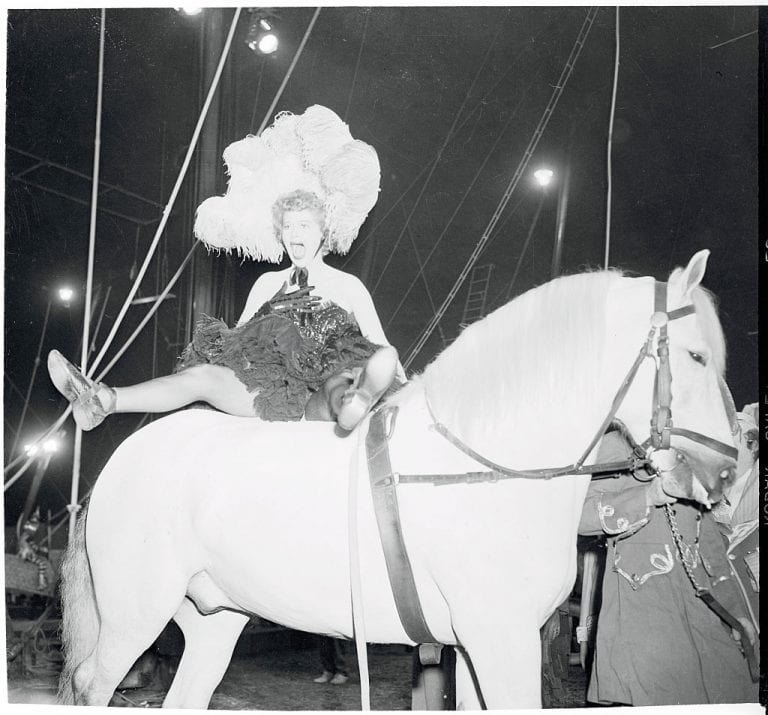
Getty Images
When she appeared in Too Many Girls, Ball met Cuban singer Desi Arnaz, who played the bongos and performed some romantic music for the show. His charisma and confidence drew her in right away. They could relate on the level of show business and both had an appreciation for music and entertainment. Lucy began to have feelings for Desi soon after.
12. Romance with Desi Arnaz
Lucille Ball was never the type to swoon over a man. On top of this, Arnaz was the polar opposite of the men she usually dated. She preferred older men, but Arnaz was a little younger (he was 23, and she was 28 when they met). Despite all this, they soon became inseparable.
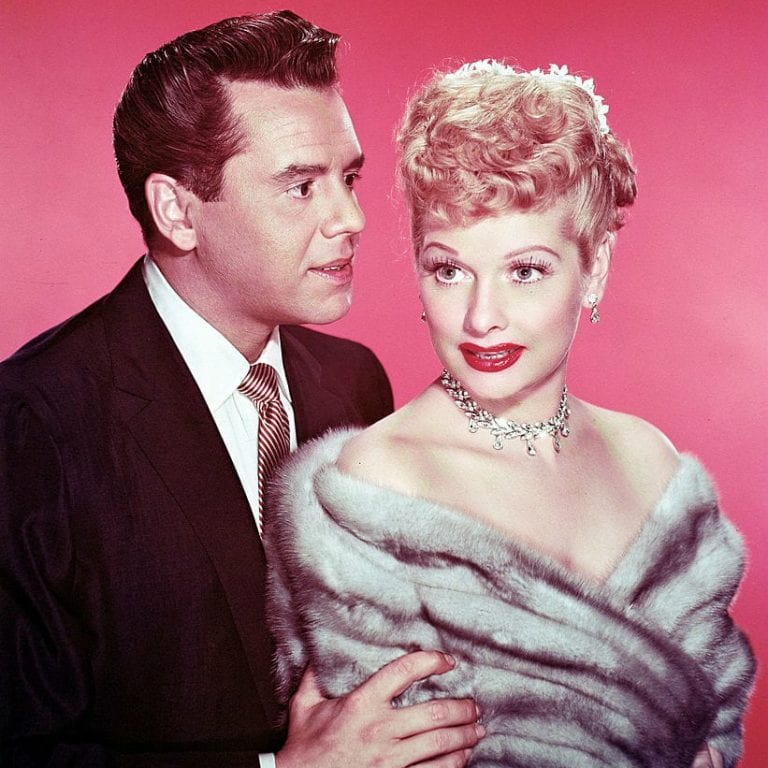
Photo by Silver Screen Collection/Getty Images
Ball would go out of her way for Arnaz, changing her style to make him feel more comfortable. She had a reputation for being an independent, headstrong individual, so their acquaintances thought this was strange.
13. Arnaz Met His Match
Ball clearly had a deep love for her co-star. It was an intense love affair. They couldn’t keep their hands off each other, and Arnaz admired Ball for being a strong, intelligent, and humorous woman. It was difficult not to be smitten with her.
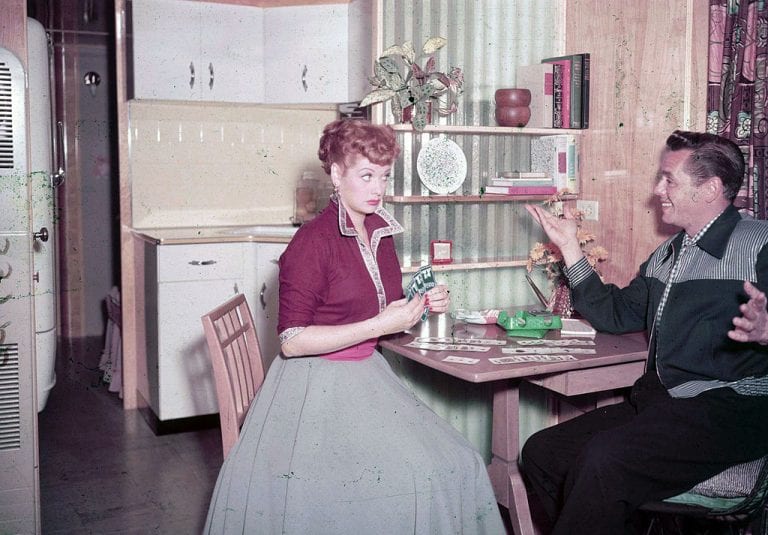
(Photo by Archive Photos/Getty Images)
Arnaz’s family was from Santiago de Cuba, and he ended up in Miami after the Cuban Revolution of the 1930s. He discovered a vocation in music while he was there. He thought he’d met his perfect match with Lucy. Their partnership, however, was not without its difficulties.
14. A Hasty Marriage
Many saw Ball and Arnaz as strongly attached partners. Six months after dating, friends were surprised when their marriage was announced. Many in their close-knit networks didn’t think it would work out because they both wanted to reach the top of the entertainment world.
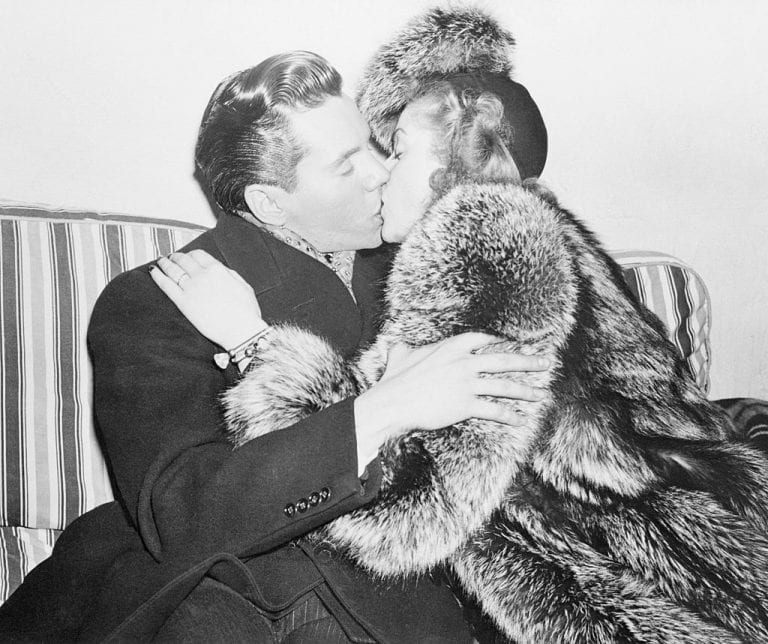
Getty Images
Many people predicted that the pair would only last a year before everything went up in flames. Contrary to expectations, their marriage lasted for nearly two decades. They enjoyed some fantastic highs and some awful lows throughout that time.
15. A Career-Driven Couple
It was not an easy marriage for them. Ball was taking Hollywood by storm while Arnaz was busy creating a reputation for himself as a musician. They were both a little jealous of each other’s successes.
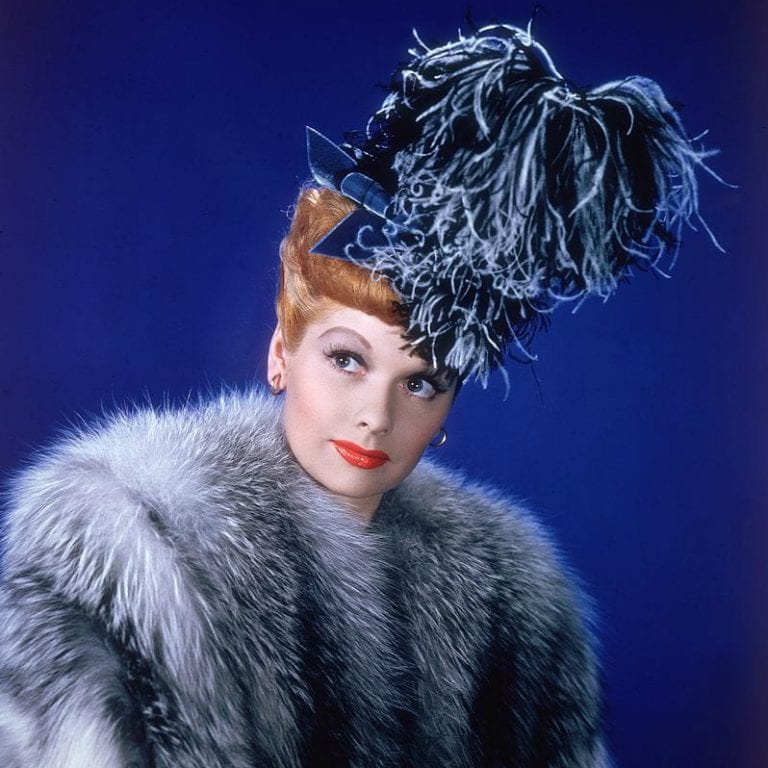
Photo by Hulton Archive/Getty Images
Arnaz seemed to be everywhere but at home. He was frequently out late with his band, playing until two or three in the morning. Though he and Ball built a life together, Arnaz had a habit of drinking and flirting with other women. Poor Lucy felt lonely and isolated from her spouse.
16. Taking a Step Up
Lucy won the main role on the radio show My Favorite Husband, starring alongside Richard Denning. This was the role that would later become Ball’s famous persona – the one we all know and love from I Love Lucy. Unlike her movie roles, this part demanded that Ball perform in front of a studio audience.
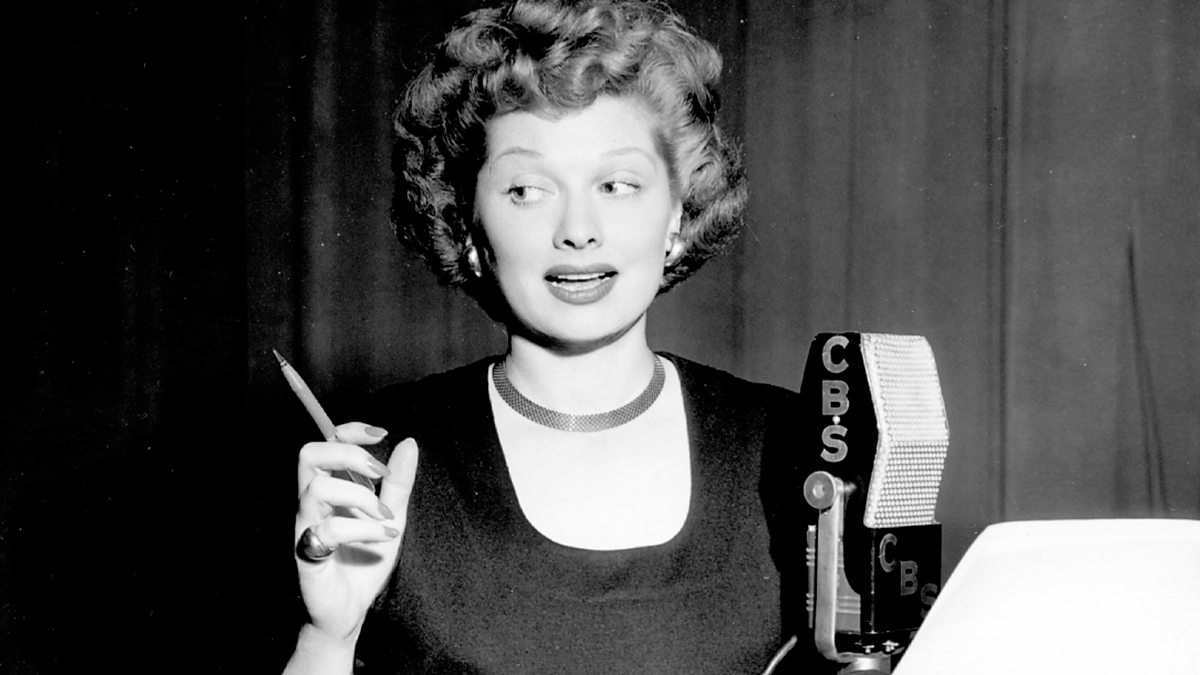
tumblr
After hearing her performance, CBS executives recommended creating a live version of the show, which would revolve around the antics of a married couple. Ball agreed but on one condition.
17. A Role for Arnaz
Lucy wanted Arnaz to play the role of her husband. At the time, however, discrimination against Latino-Americans was rampant. The studio executives didn’t think a Cuban singer with an accent would be popular with the public.
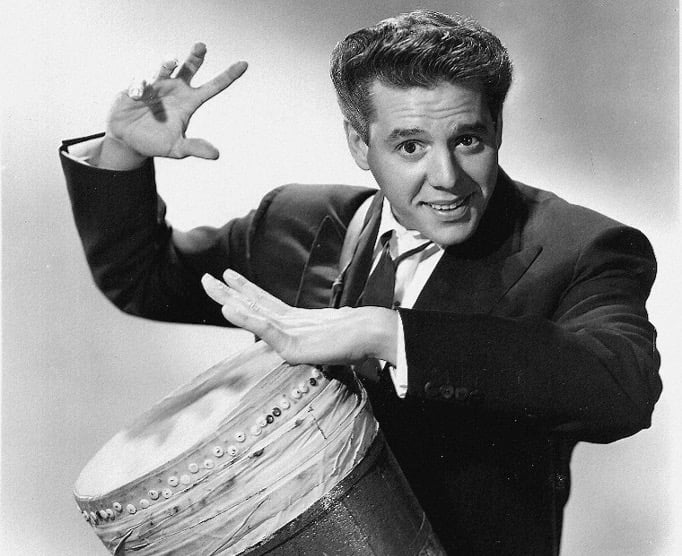
IMDb
Getting him off the road and into Hollywood was her main purpose. “Meeting in the Sepulveda tunnel” had become a chore for her. She put on an I Love Lucy Vaudeville show to convince the executives that she and her spouse were a good match.
18. America’s Most Popular Pair
The CBS executives couldn’t ignore the positive feedback for the I Love Lucy vaudeville show. They couldn’t go ahead without Lucille Ball, and Arnaz was a strong, attractive counterpart to her humorous and clumsy persona. They rapidly became America’s most popular pair.
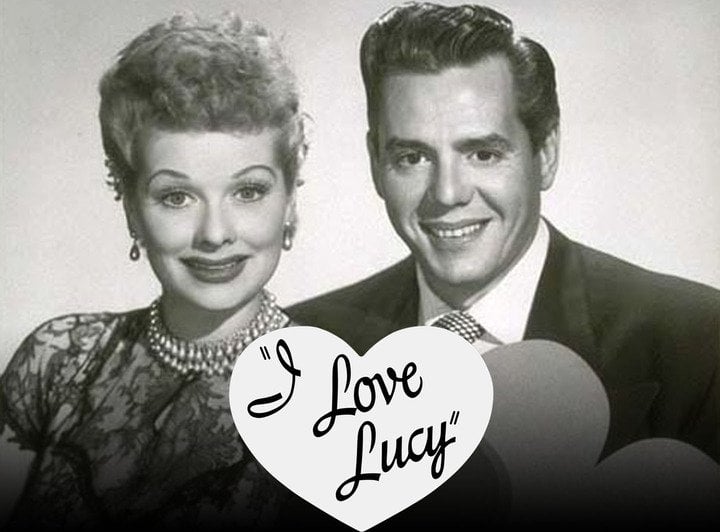
popsugar
After the first episode, the team knew they were onto something fantastic when their live audience erupted in laughter. The best part? Ball had the advantage in the studio since she was the only one who could deliver that level of laughter.
19. Cultural Influence
The redheaded star was conscious of how Hollywood shapes culture. The show emphasized positive female friendships and showed the first television pregnancy. Ball’s remarkable facial expressions and body language were what made the show so humorous and intriguing.
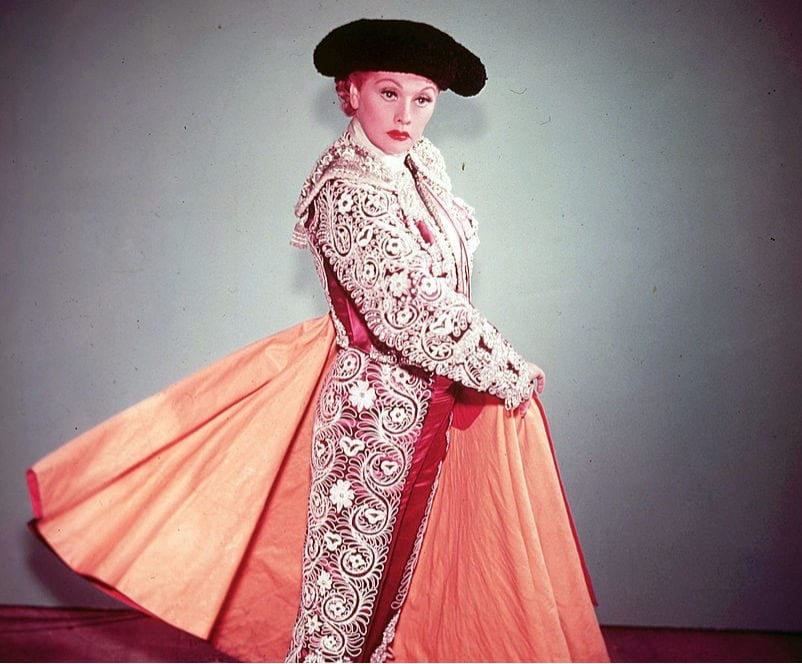
Photo by Archive Photos/Getty Images
She was known for her facial expressions, sense of humor, and body language, which were universally understood by any household. However, the show wasn’t all fun and games; occasionally, humor may go too far, as evidenced by an actual confrontation between two Italian grape stompers.
20. Lost in Translation
Teresa Tirelli was an extra who crushed grapes with Lucy in Lucy’s Italian Movie. Tirelli didn’t speak English well and needed a translator to communicate the scene, but something was lost in the translation.
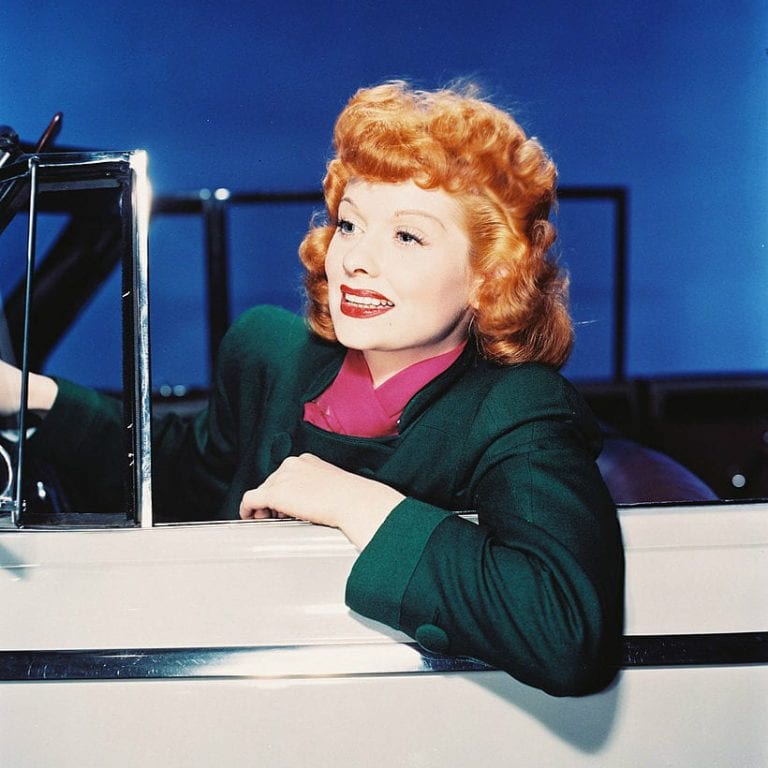
(Photo by Archive Photos/Getty Images)
They started wrestling, which was hilarious for the crowd. However, Ball nearly drowned in a vat of grape juice as a result of the situation. Luckily, she recovered quickly and then slammed a fistful of grapes into Tirelli’s face. This misunderstood moment ended up being comedic gold. Ball and Arnaz were satisfied with the show’s success and decided to do something bold.
21. Arnaz Launches a Production Company
Desi Arnaz started his own production company, Desilu, a combination of his and Lucy’s first names. This allowed him to take on another aspect of the Hollywood industry. They made millions by purchasing the rights to I Love Lucy from CBS.
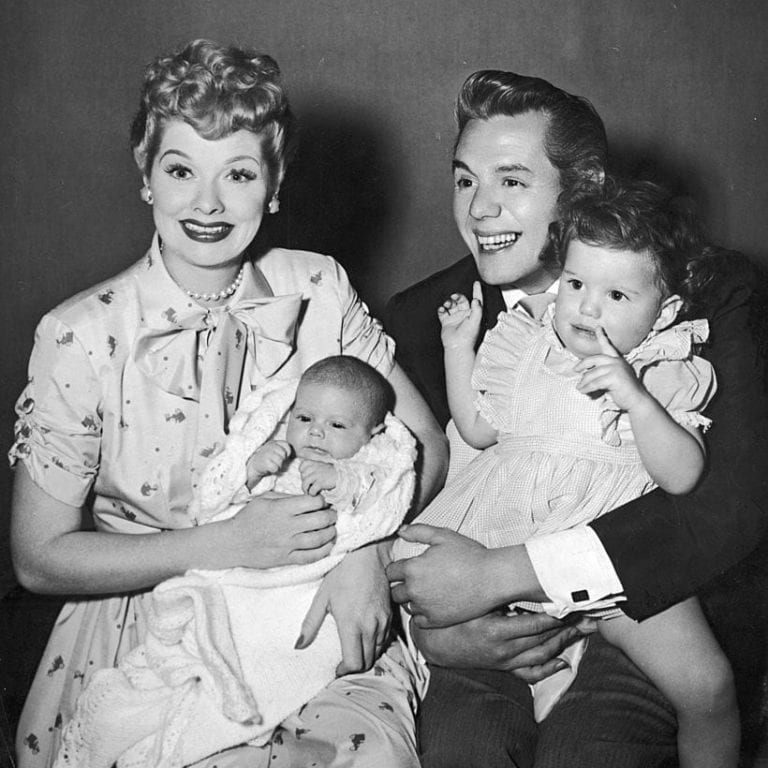
Photo by Hulton Archive/Getty Images
In one I Love Lucy episode, the couple introduced their son Desi Jr. His genuine “TV birth” was part of the show. In fact, Ball gave birth to him the same night the show aired! They were a real American family to whom everyone could connect.
22. Lucy’s Iconic Hair
Ball was not a natural redhead; she was a brunette who dyed her hair for her television career. Her hairdresser referred to the color as “apricot gold” rather than “red.” The only problem was, this shade was not the easiest thing to create.
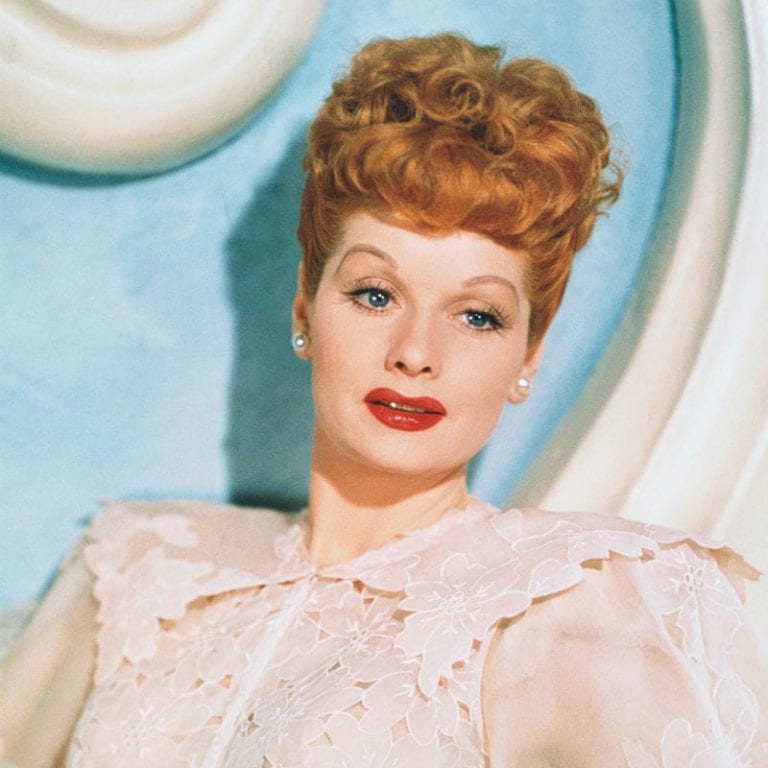
Photo by Herbert Dorfman/Corbis via Getty Images
Ball allegedly met a wealthy sheik while performing a show in Vegas, and when he learned of her difficulty, he gifted her with a lifetime supply of a crimson dye that perfectly matched her desired shade. The recipe was kept secret, but that was the least of her concerns.
23. Arnaz Craved Single Life
Ball and her husband would frequently fight over his flirty behavior with other women. His drinking habits were a problem too. She hoped that having children would prevent him from acting like a bachelor, and for a while, it worked.
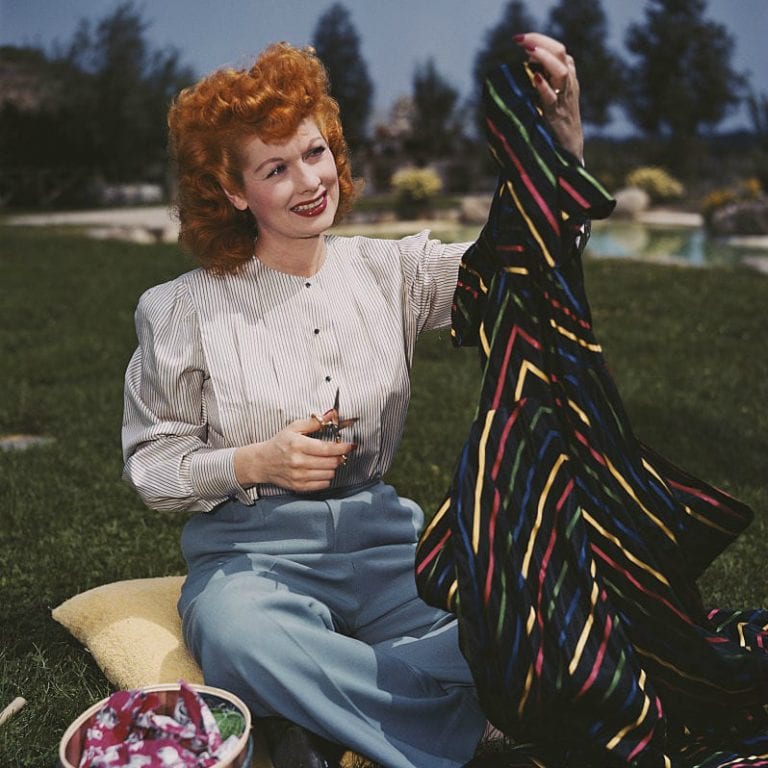
Photo by Herbert Dorfman/Corbis via Getty Images
Ball thought that through having children, her husband would be able to see things clearly. He did for a while. However, it is tough to break old habits. Everything began to fall apart, despite his love for his wife and children.
24. The Perfect American Family?
On the set of their show, Desi Arnaz and Lucille Ball were always in good spirits. They needed to seem like a loving American family dealing with problems that could be remedied in half an hour. Lucy was at her happiest when the cameras were rolling, but with each day, her anger with Desi grew.
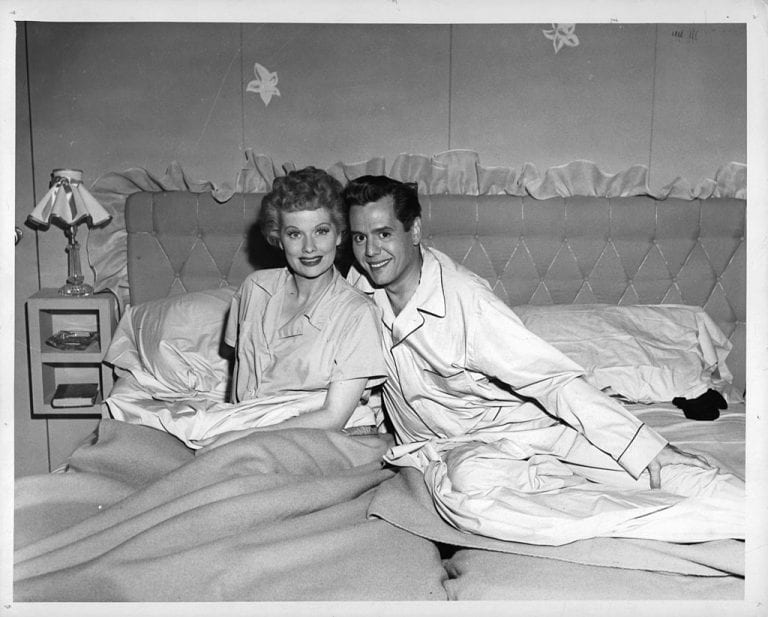
(Photo by CBS/Getty Images)
They were at one another’s throats as soon as the director said “cut.” The relationship was slowly falling apart due to his alleged cheating, excessive alcohol consumption, and the stress of running Desilu. Their idyllic marital illusion would soon be shattered.
25. The Bitter End of I Love Lucy
I Love Lucy didn’t end as innocently as it began. Lucille believed that no matter how painful reality was, the audience should always be able to believe in a happy ending. In 1957, the final episode of I Love Lucy aired.
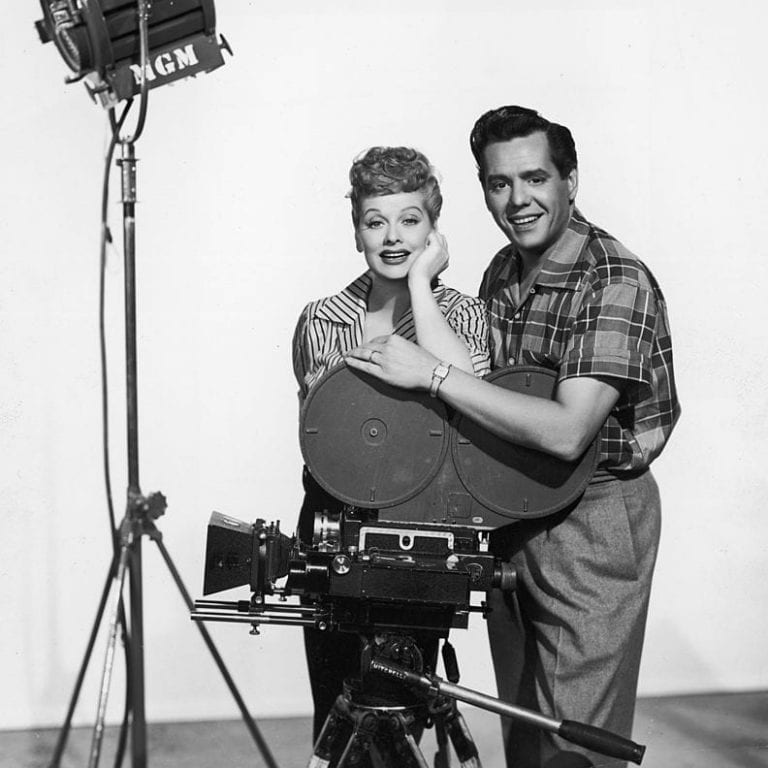
Photo by Hulton Archive/Getty Images
After the finale show, the couple attempted to revive it as The Lucy-Desi Show. Unfortunately, they couldn’t come close to matching the success of I Love Lucy. Everything came to an end when the couple divorced in 1960.
26. Dealing with Divorce
Ball’s life was at its darkest during the first few months after their divorce. She had been married to Arnaz for nearly two decades. The fact that she had disappointed not just herself but also the American people was what killed her the most.
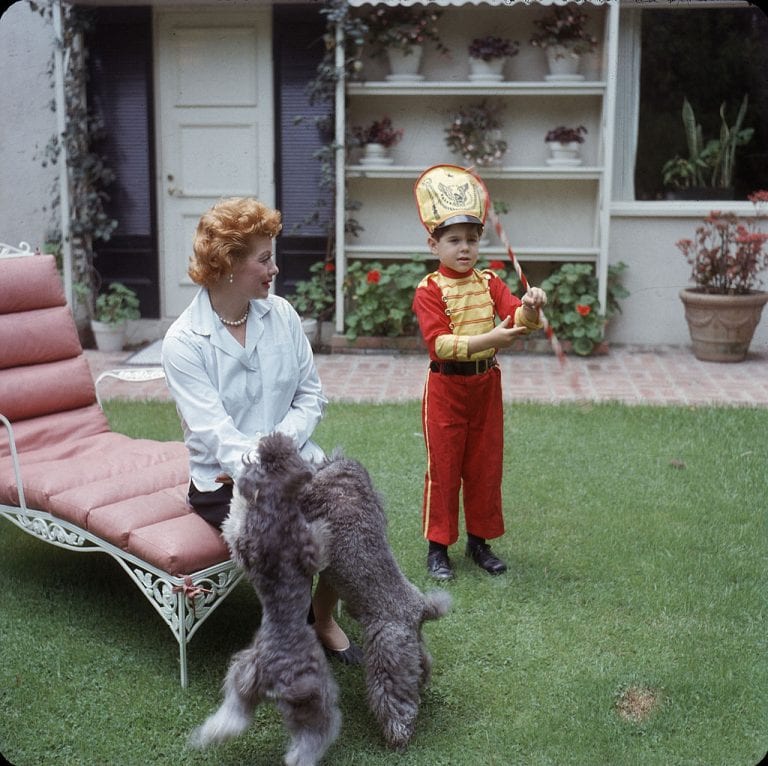
(Photo by Gene Lester/Getty Images)
As time passed, she began to have doubts about herself, her identity, and what would happen to her family and her career. Ball could say one thing with certainty, though: no matter how upset she was with her ex-husband, she never blamed him.
27. Communist Party Connections
Lucy joined the communist party and was called before Congress during the height of McCarthy’s witch hunt. The 1950s were not a terrific time to be anything other than a republican.
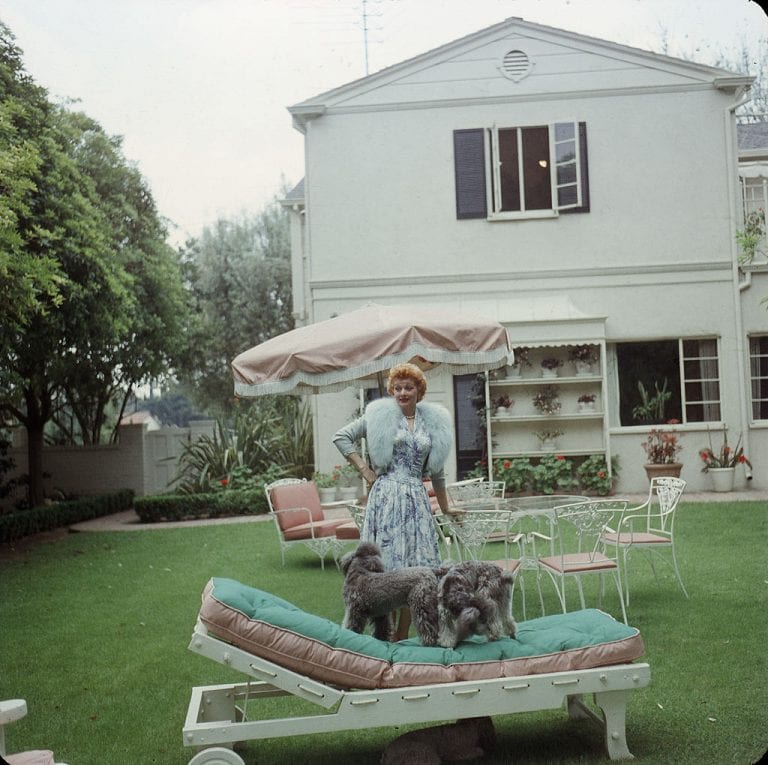
(Photo by Gene Lester/Getty Images)
Ball assured Congress that she had signed up to appeal to her socialist grandfather when she appeared in court, but no one believed her. They released Ball, not because they “believed” her account but because there was no substantive evidence tying her to the Communist Party.
28. Ball Was Monitored by the FBI
The FBI continued to monitor her after she was released. J. Edgar Hoover, who made it his personal mission to track down the Arnaz family, received secret files with “confidential” stamps. The FBI was certain that catered events were being used as a cover for organizing Communist meetings.
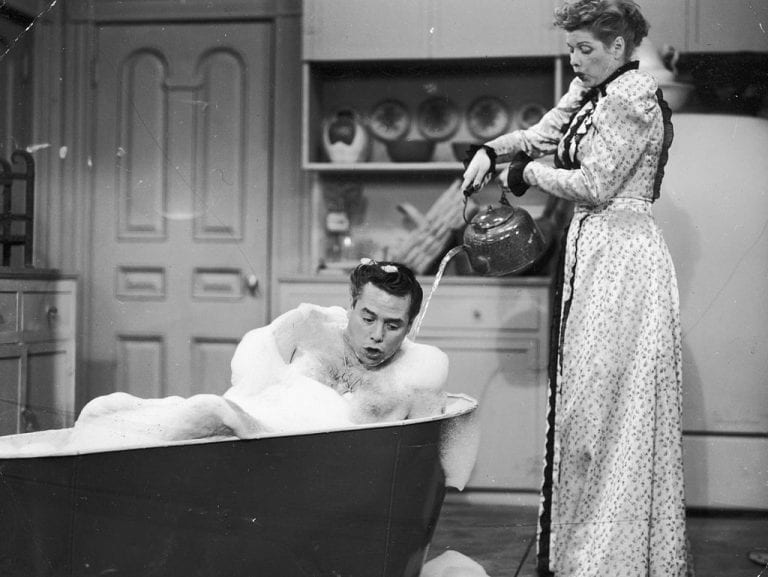
(Photo by FPG/Archive Photos/Getty Images)
The Washington Post reported that, in February 1946, Arnaz had been part of an event hosted by the Hollywood Independent Citizens Committee of the Arts, Sciences, and Professions. The FBI claimed this was a “Communist front.”
29. Star Trek by Desilu
Despite these dramas, Desilu was taking Hollywood by storm. The I Love Lucy heyday had ended, but Desilu found great success with The Dick Van Dyke Show, Mission: Impossible, Star Trek, and other popular TV shows. Ball remained a partner in Desilu for years before eventually purchasing it.
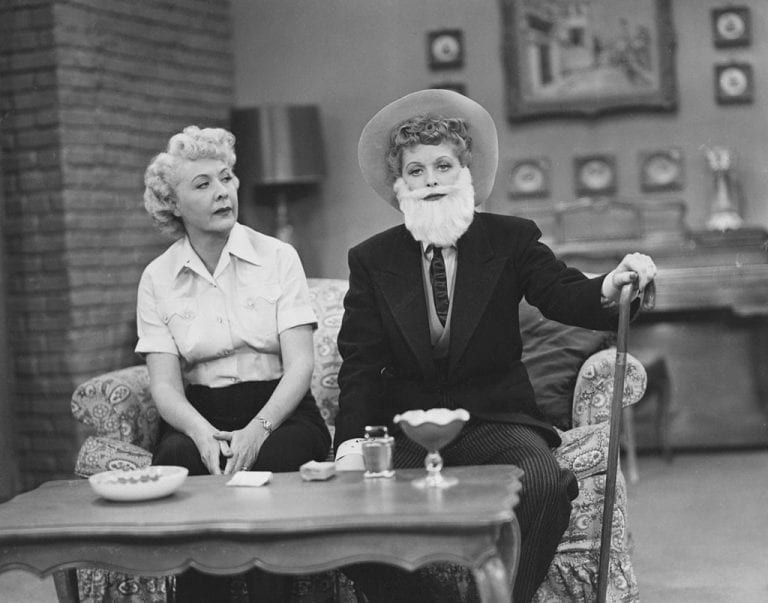
(Photo by FPG/Hulton Archive/Getty Images)
The Star Trek pilot was initially rejected by CBS because the production budget was too high. However, with Ball’s financial backing, the pilot was completed. Star Trek is now one of the most popular media franchises in history.
30. Love and Faithfulness with Gary
Though Ball and Arnaz had a tumultuous divorce, the two remained friends. Thankfully, they were better at being friends than they were at being husband and wife. Lucy found love again with comedian Gary Morton whom she started dating in 1961, a year after her divorce.
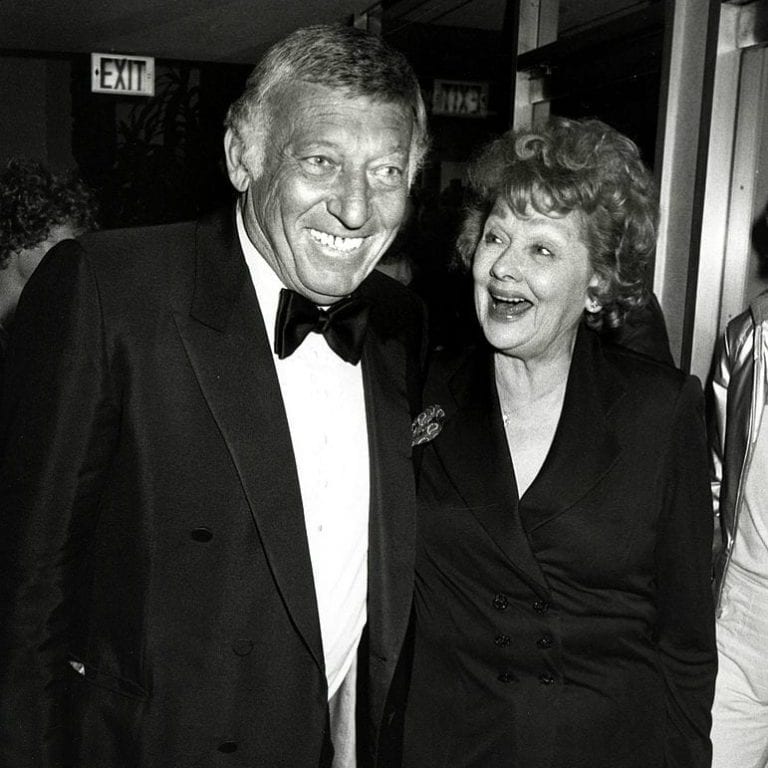
Photo by Ron Galella/Ron Galella Collection via Getty Images
Ball revealed how kind and compassionate Morton was to her in an interview with Barbara Walters. Morton was just as happy, finding Lucy to be tender, amusing, and dynamic. They were married for nearly 25 years.
31. Ball was a Brilliant Businesswoman
Lucille Ball knew how to run a business. She was said to be a difficult boss to work for because she was a perfectionist who valued attention to detail, perfect punctuality, and absolute commitment to getting the job done right.
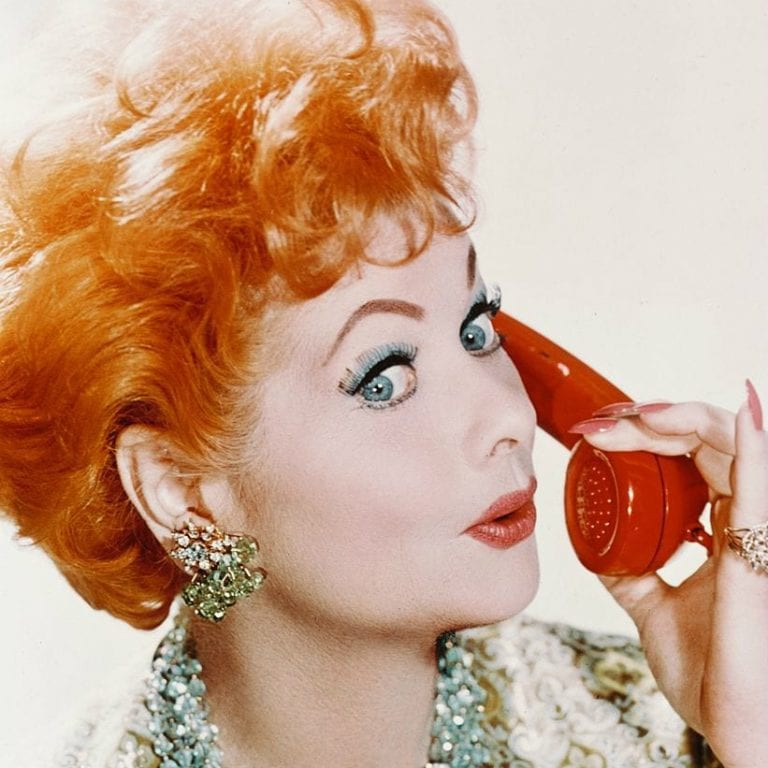
Photo by Silver Screen Collection/Getty Images
Her business acumen propelled her to become the first female president of a large television production company. She sold Desilu to Western Gulf in 1967 for $17 million dollars. Just when you thought she was finally finished with television, Lucy launched the next big thing.
32. Retirement Wasn’t an Option
Ball believed that after The Lucy-Desi Show, she’d find solace in retirement. Instead, she continued acting and decided that involving her children in the Hollywood spotlight would be a good idea. Ball would soon return to television in Here’s Lucy, this time with her children in tow.
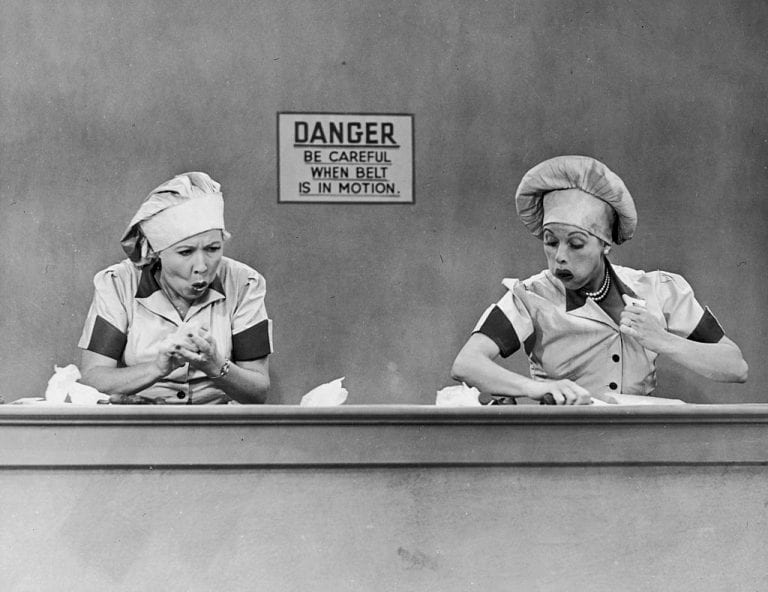
Photo by CBS Photo Archive/Getty Images
Lucille Ball was a staunch believer in nepotism: “It’s not so much what you do as it is who you know,” she said. Ball knew a lot of people in high places. Her children were able to flap their wings and fly in their own occupations as they grew older.
33. From I Love Lucy to Here’s Lucy
Ball welcomed retirement at first since she didn’t see herself working too much beyond the I Love Lucy days. However, it’s difficult to break workaholic habits, especially if you’re as dedicated to your profession as Lucille Ball was.
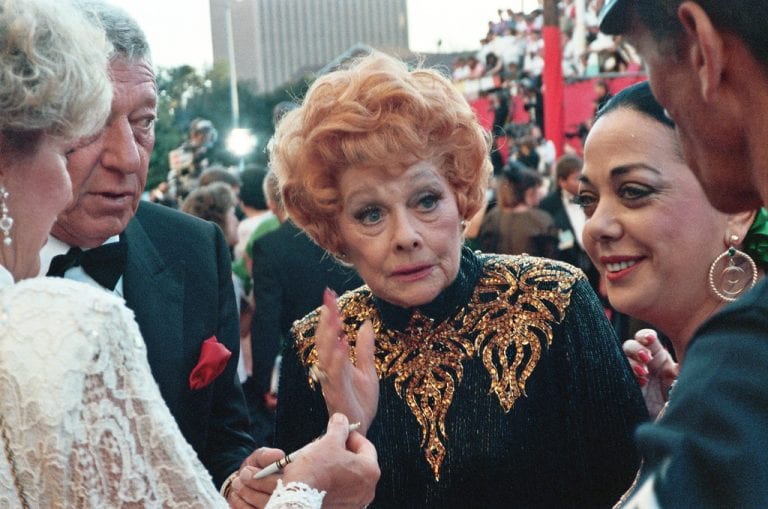
life.tw
Though Lucy was still America’s most beloved television personality, she recognized that her time had passed. She took a step back to make room for the next generation. In 1989, she made her last public appearance at the Academy Awards.
34. Lucille Ball Left a Legacy
Lucy eventually found solace in the arms of retirement. When she was down, she had her husband Gary Morton by her side to console her, along with the endless love of her children and grandkids. What more could she possibly want?
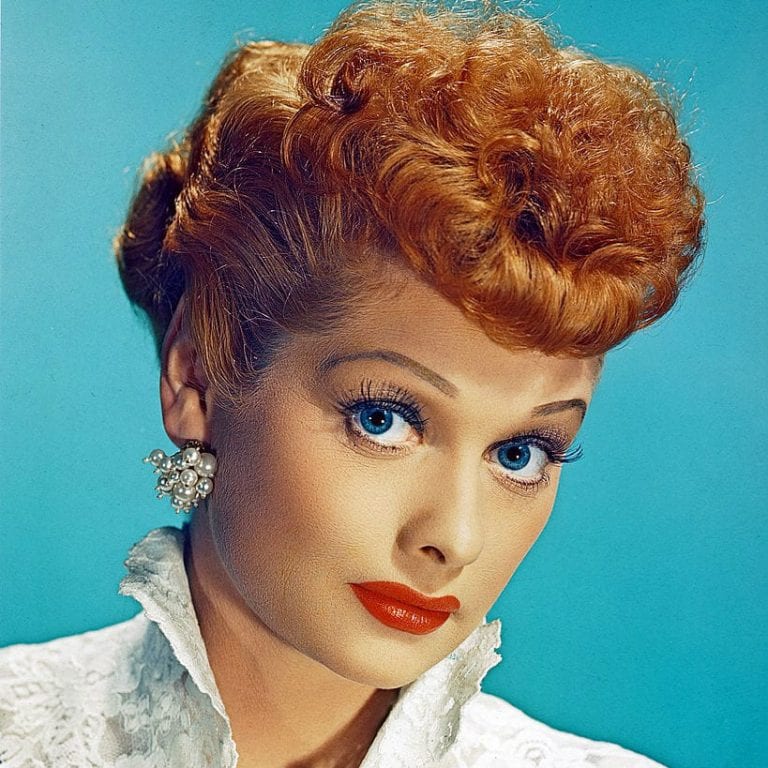
Photo by Silver Screen Collection/Hulton Archive/Getty Images
Television would never be the same again, and no one could ever duplicate what Ball had accomplished. She cleared the path for female comedians as well as female executives and producers. In 1989, she passed away.
35. Why is Lucille Ball Worth Remembering?
Apart from her lethal sense of humor, Lucille Ball was a formidable woman. From failing theatre school to becoming one of history’s funniest female figures, she is a shining example of why you should never give up on your dreams. But what of Lucille Ball, the woman behind the camera? What happened behind the scenes during her six years as “Lucy”?
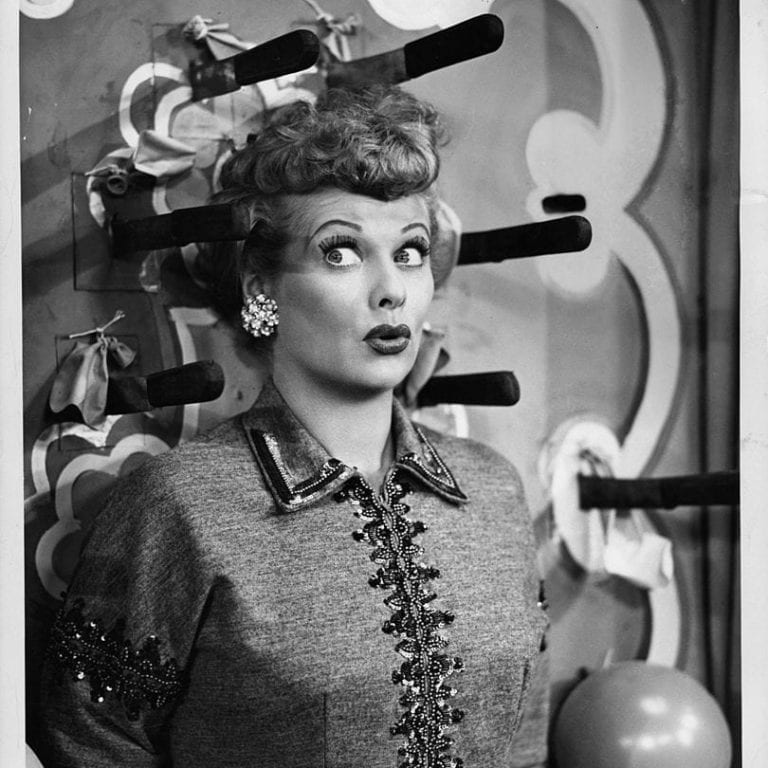
Photo by CBS/Getty Images
It’s not all rainbows and butterflies. In fact, the 1950s sitcom has a few surprises. For example, did you know that “Lucy Does a TV Commercial” was Ball’s least favorite episode? This was the one in which she messed up the Vitameatavegamin ad.
36. Ball’s Least Favorite Episode of I Love Lucy
While watching Lucy slowly become intoxicated by Vitameatavegamin was entertaining, the actor was understandably concerned about performing the scenes. Why? Because you can only say Vitameatavegamin so many times without getting tongue-tied.
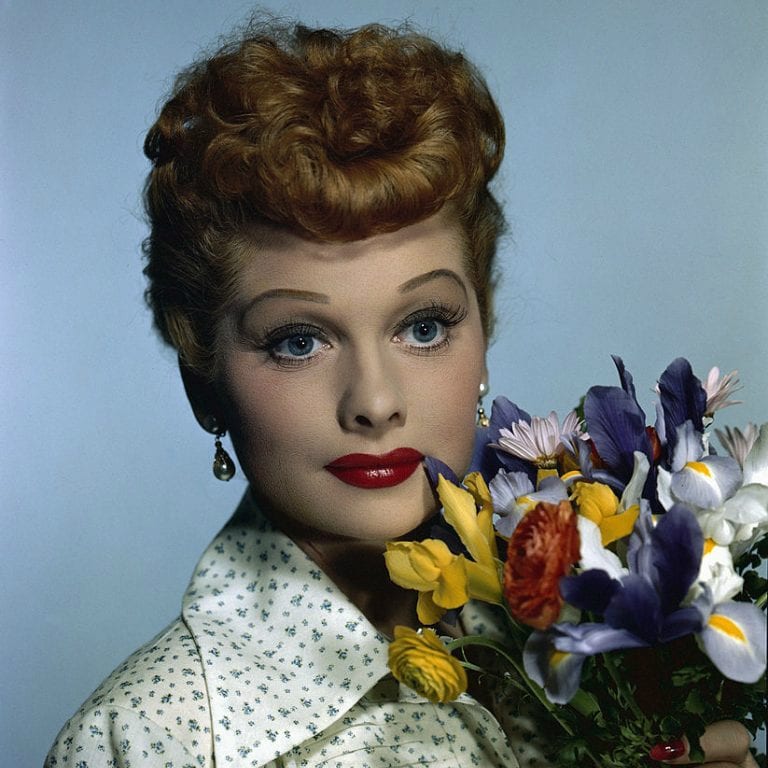
Photo by Archive Photos/Getty Images
Every mistake and slurred word was written into the screenplay – they weren’t accidents. She even had cue cards for her lines in case she forgot them. Being the perfectionist that she was, Ball took her role seriously and delivered a flawless performance of flaws. The audience was enthralled by the piece.
37. Her Toughest Times
Every woman’s body is unique, especially when it comes to pregnancies. Though some women revel in it, pregnancy was tough for Lucy. We all knew Ball was pregnant with her second child when the second season of I Love Lucy premiered.
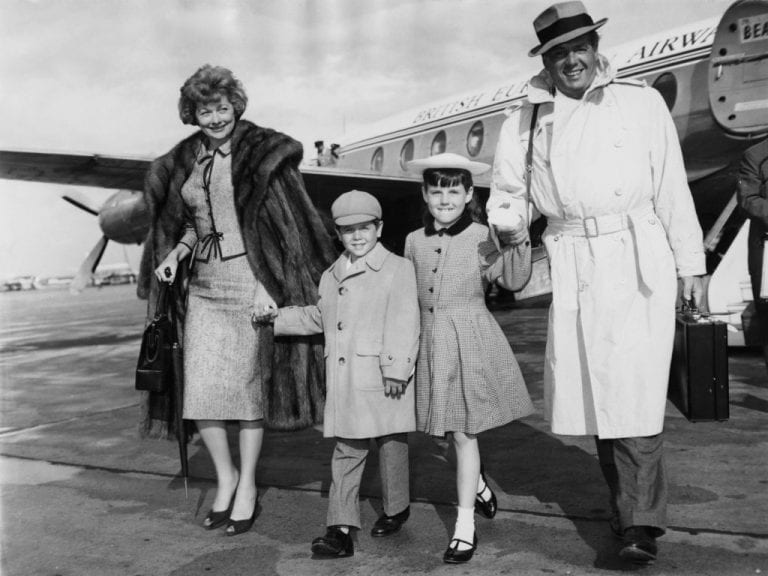
(Photo by J. Wilds/Keystone/Hulton Archive/Getty Images)
Unfortunately, it was the 1950s, and being open about pregnancy was taboo at the time. To avoid what they feared would be a national controversy, producers chose to avoid using the word “pregnant” and instead used the word “expecting.”
38. The Scene Arnaz Refused to Film
Desi and his family had no money when they were forced to flee Cuba in 1933 owing to the Cuban Revolution. To make ends meet, Arnaz took odd jobs like cleaning out canary cages until he was able to pursue his dream of being a full-time musician.
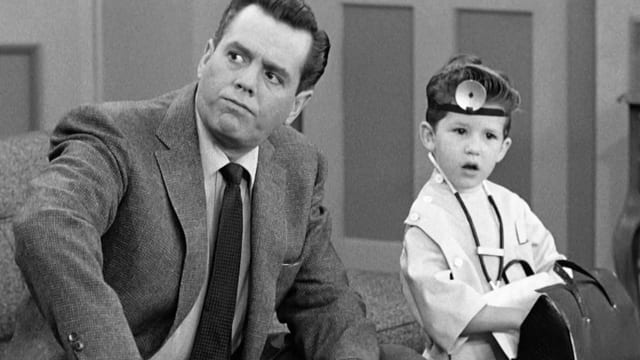
IMDb.com
So it’s no surprise that Arnaz turned down a sequence in the episode “Lucy Tells the Truth” in which his character was supposed to fudge some tax numbers. Arnaz did not want the audience to assume that Ricky was a suspicious individual who would commit fraud in the country (America) that gave him a home.
39. I Love Lucy’s Unique Camera Format
The I Love Lucy show creator, Jess Oppenheimer, wanted a live studio audience and three cameras instead of a single-format camera. It was thought to be efficient because the same scene would not have to be repeated, so the audience would not get sick of seeing it.
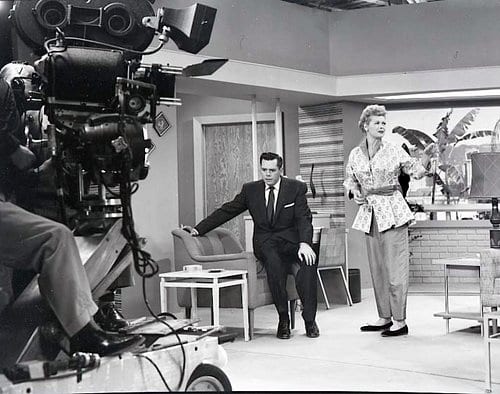
This new arrangement meant three different angles of every scene could be captured at once. If any editing was required before the episode’s publication, it could simply be done with footage from one of the three cameras. This show truly was revolutionary and inspired many shows to come!
40. The Legacy That Followed
Because of Lucille Ball’s business savvy, comedic skill, and acting skills, she was able to forge a path for herself and her family. However, it wasn’t just her who felt the cultural impact of her hard work and labor.
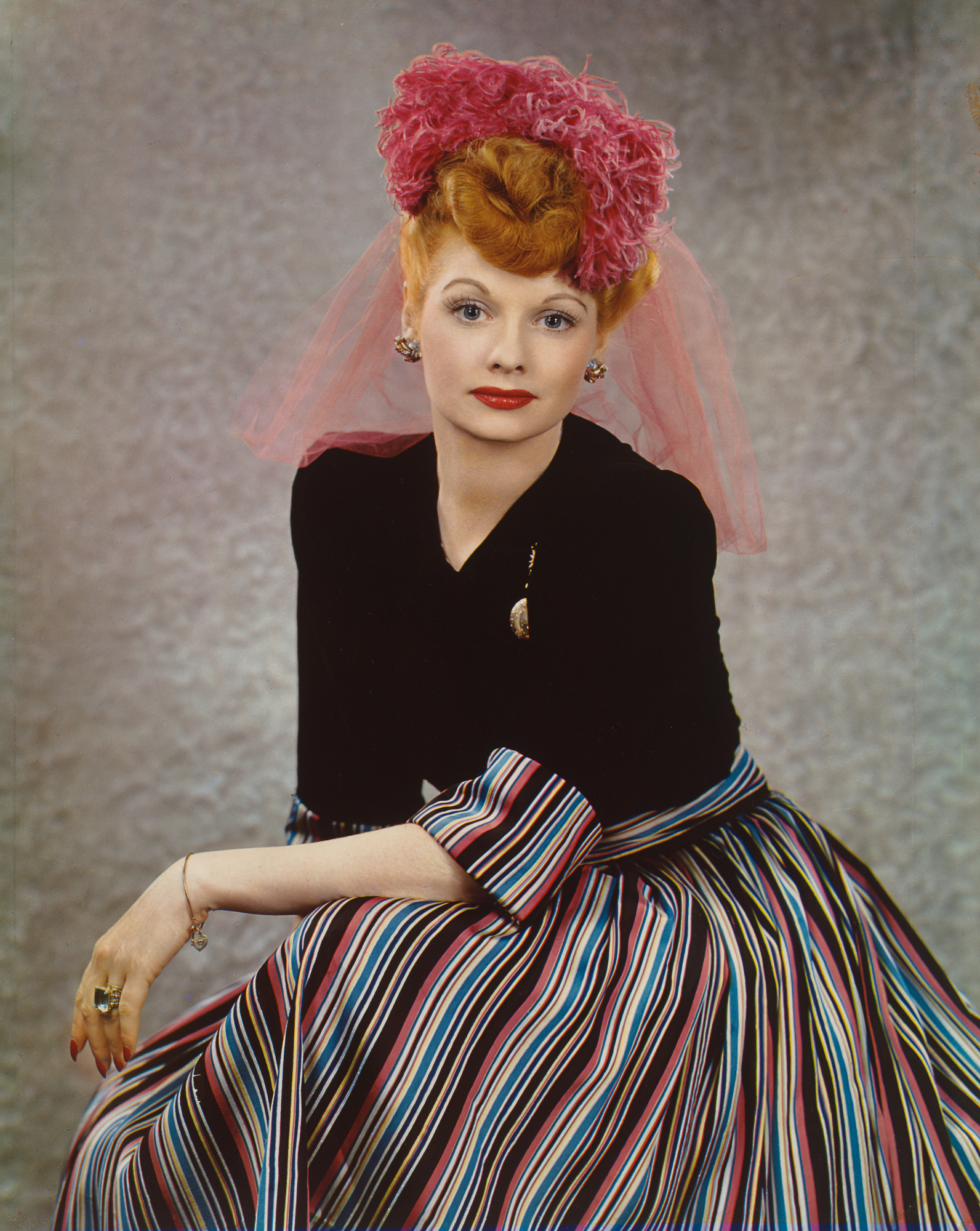
Lucille Ball
Many women and men who followed after the exemplary success of I Love Lucy and Desilu were able to create their own empires off the building blocks put forth by Lucille Ball.
41. First Female Producer
Lucille Ball was Hollywood’s first female producer which paved the way for one of the most iconic TV personalities, Oprah WInfrey. This is not to say that without Lucille there would be no Oprah, however, every first is a stepping stone for others to ascend upon.
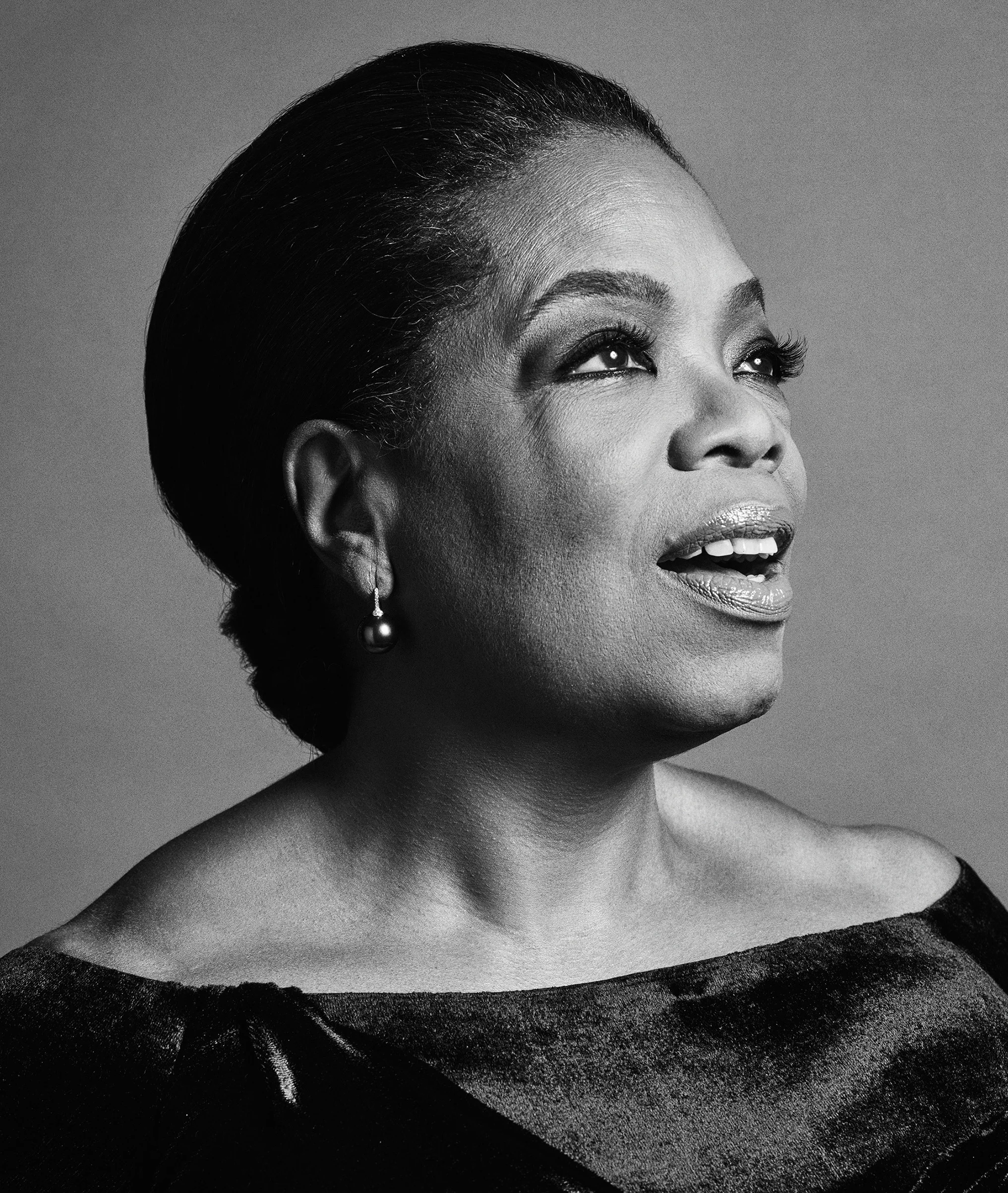
Following Oprah was Shonda Rhimes, who created and produced hits such as Grey’s Anatomy, Bridgerton, and Scandal
42. On Screen Interracial Marriage
Lucille pushed to have her Cuban-American husband as her co-star at the conception of I Love Lucy. Producers were hesitant though due to Desi’s Cuban descent, however Lucille proved them wrong.
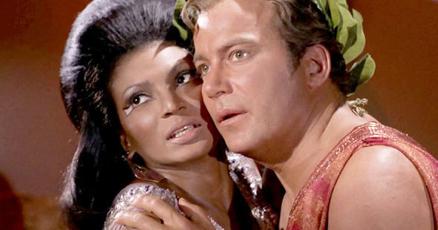
blogspot
This opened the floor for Lucille to use her success and sway in the show Star Trek and feature interracial cast members and romance. Lucille Ball has a huge hand in removing the stigma surrounding who gets to appear on TV.
43. Comedy Legend
Lucille’s enigmatic charisma on screen coupled with her goofy faces and charm shot her into mega-stardom as a comedic legend. She is in the canon of comedians who will be everlasting.
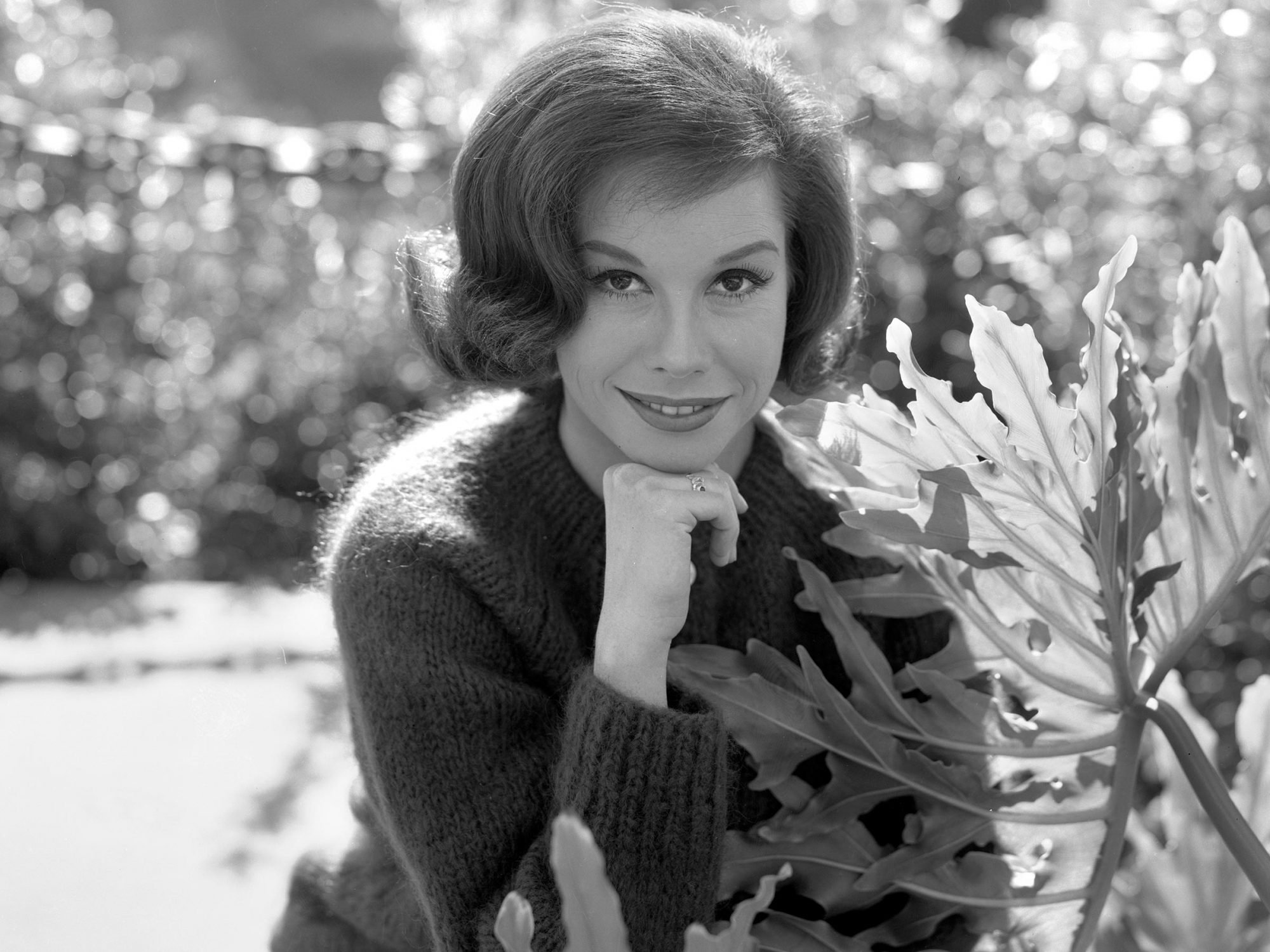
ew.com
Lucille’s enigmatic charisma on screen coupled with her goofy faces and charm shot her into mega-stardom as a comedic legend. She is in the canon of comedians who will be everlasting.
44. Pregnancy on the Job
Another hurdle for women and television was the ability (or inability) to be pregnant at work and on the job. Lucy changed that with her on screen pregnancy and forever changed television.
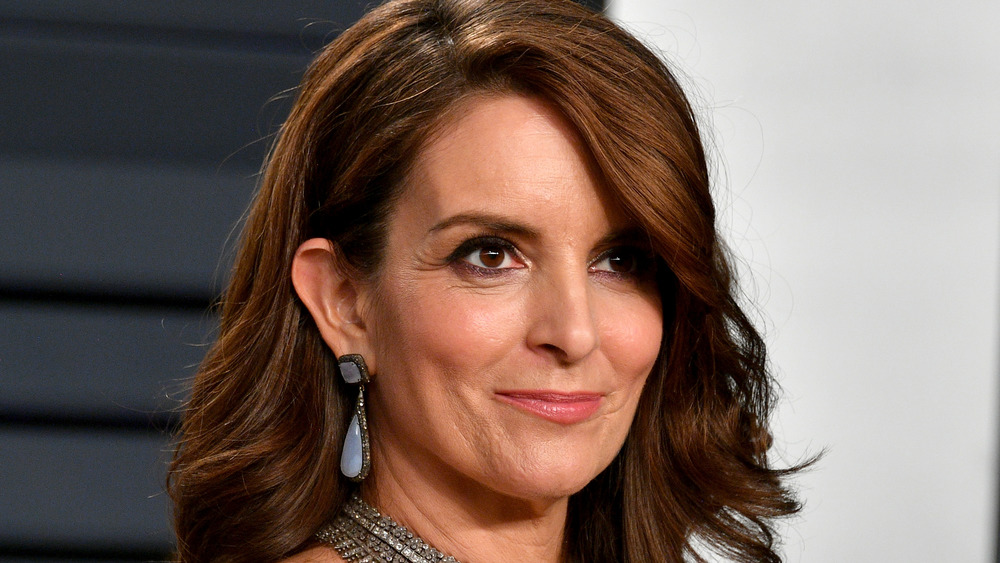
popcrush
Tina Fey, who also became a producer and comic, was pregnant at her work. Amy Poehler, who is also a producer and comedian, followed suit. And finally, Kerry Washington from Scandal had an interracial romance and on-screen pregnancy.
45. Lucy and Ethel’s Friendship Did Not Translate in Real Life
The characters Lucy and Ethel had a much different relationship on-air then they did as co-stars. Vivian Vance, who played Lucy’s best friend Ethel, was said to have a strained relationship with the star of the show.
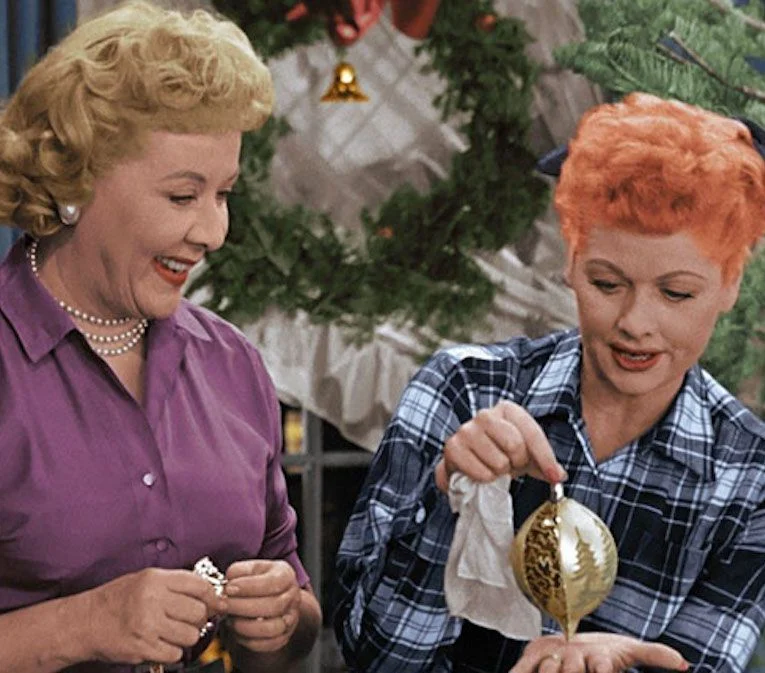
Their relationship began with a tension that would fluctuate between supportive and competitive during the entirety of the show.
46. Fred and Ethel Were Not in Love in Real Life
Fred, played by William Frawley, is said to have called his on-screen wife vulgarities and had a distinctive hatred towards her. Furthermore, he was a raging alcoholic.
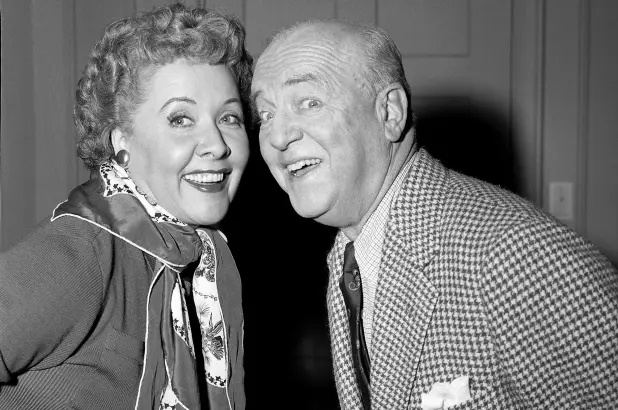
According to some, he was a “mean…rough man” as well as a “woman-hater.” He died in March 1966 at the age of 79 after suffering a heart attack. Vance died from breast cancer in August 1979 at the age of 70.
47. Lucy and Desi Divorced More Than Once
It is well known that Lucy and Desi divorced in the 1960s after spending two long decades together and creating a successful enterprise.
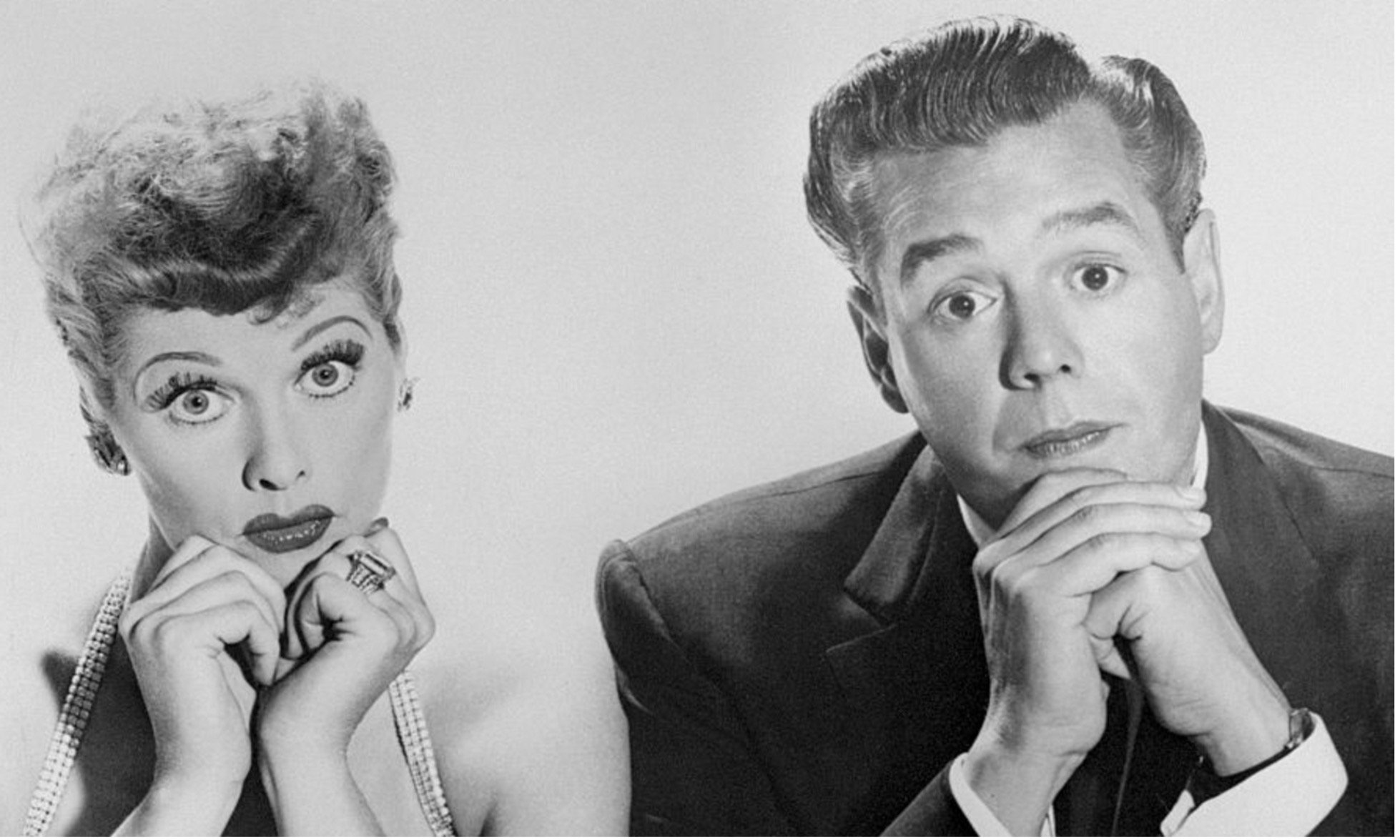
lukhome
Something that is less well known is that the two of them had been separated back in 1944, not long after the couple had married. Lucy had filed divorce. The two had split up seven years before I Love Lucy had premiered. Ultimately, they reconciled until their second split in 1960.
48. Lucy Was 40 at the Start of 'I Love Lucy'
On top of all of the other reasons that Lucy was a groundbreaking star, she also shattered cliches around actresses and the age at which they find success.
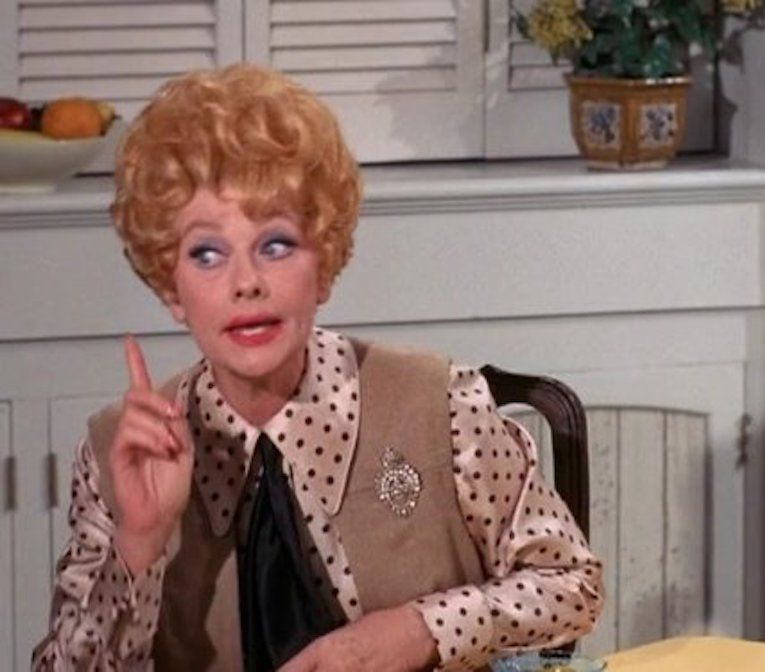
IMDb
At 40 years old, Ball began her first television show, when most actresses that age were considered “too old.” And to really stick to old notions, her co-star and real life husband Desi was 34 at the time, when it was considered taboo for an older woman to be paired with a younger man.
49. Lucy and Desi’s Children Were Named After Them
Both children of Lucille Ball and Desi Arnaz were given names after their famous parents. The first child, a boy, was named Desi Arnaz, the same name as his father.
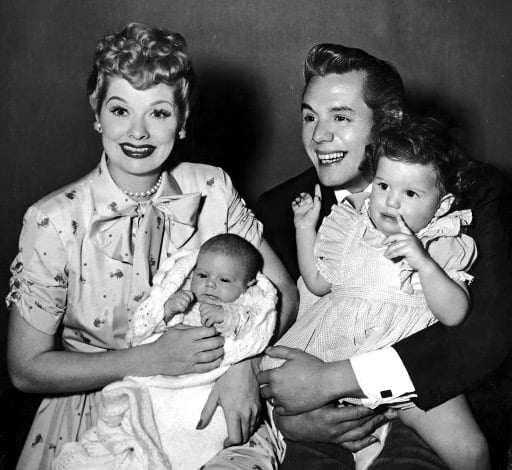
Their second child, a girl, was named Lucie Arnaz. Even cuter is that Lucie’s middle name is Desiree, an homage to both her father and her maternal grandmother.
50. The Show Was Always a Hit
As soon as the sitcom aired it was a hit. Even more amazing is that during its entire six-year run it never fell below third as the most watched show.
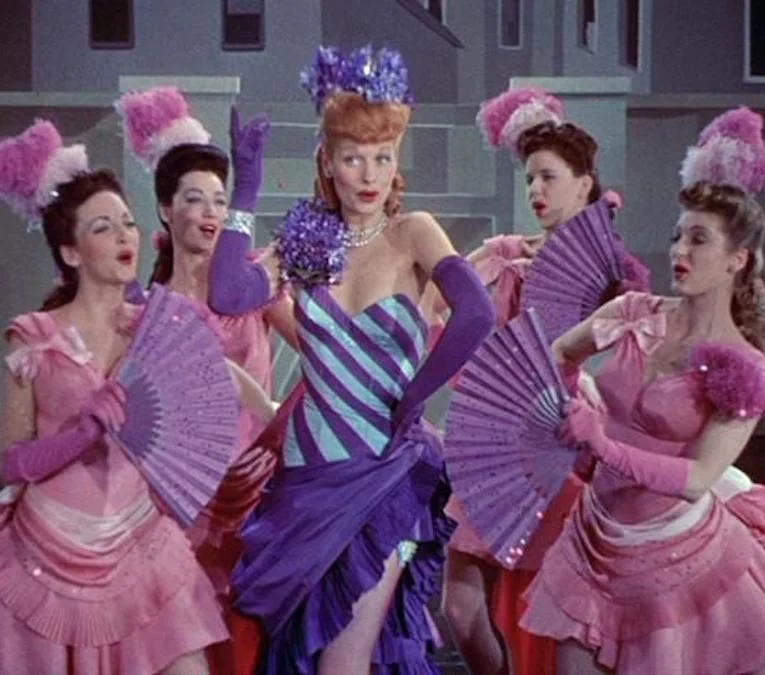
It was the number one show in the US within six months of its release in October, 1951. This was during a time when there were only around 15 million TV sets owns in the country, with 11 million of them tuning into I Love Lucy.
51. She Struggled with Having Children
In this cultural climate, women have become more free to express themselves and their struggles with having children and suffering miscarriages. However, when Lucy was at the height of her fame, she was also quietly suffering.
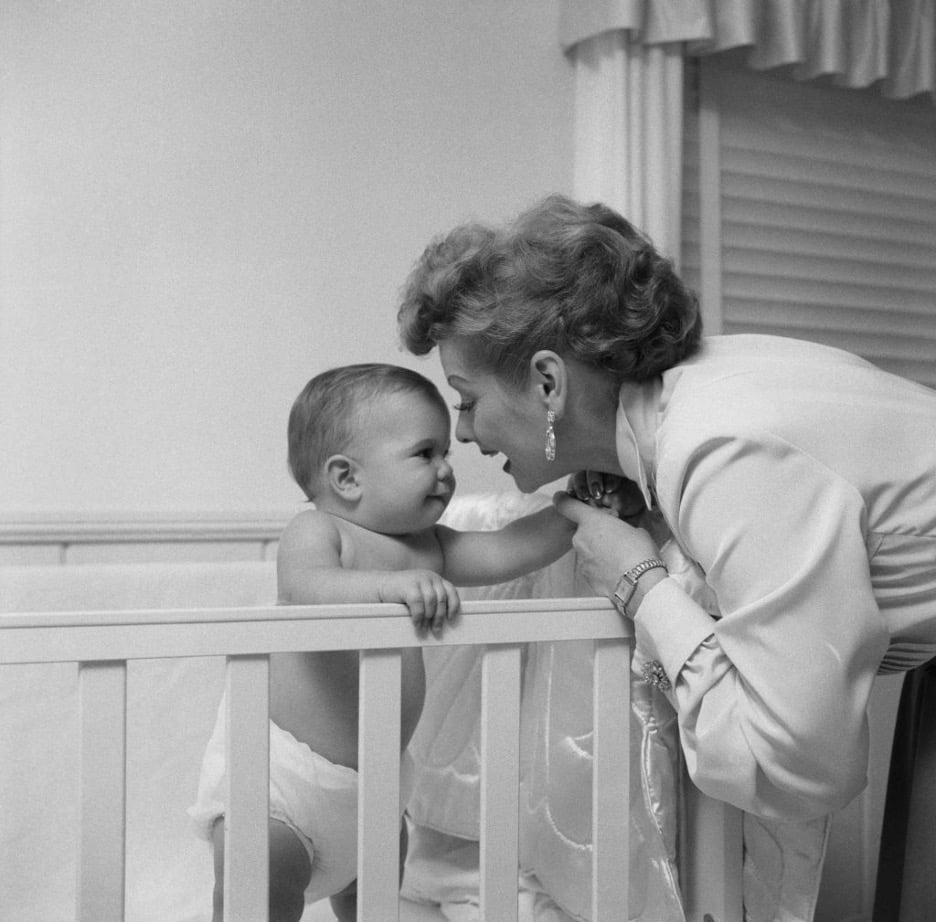
It is believed that Ball suffered three miscarriages, and felt exceeding pressure to have children to keep her marriage from falling apart.
52. Desi Junior Starred as Himself on The Brady Bunch
Thanks to his parents, Desi enjoyed fame as a teenage heart throb and this granted him access to guest spots on some pretty top-notch TV shows. Most notably, he guest starred on The Brady Bunch.
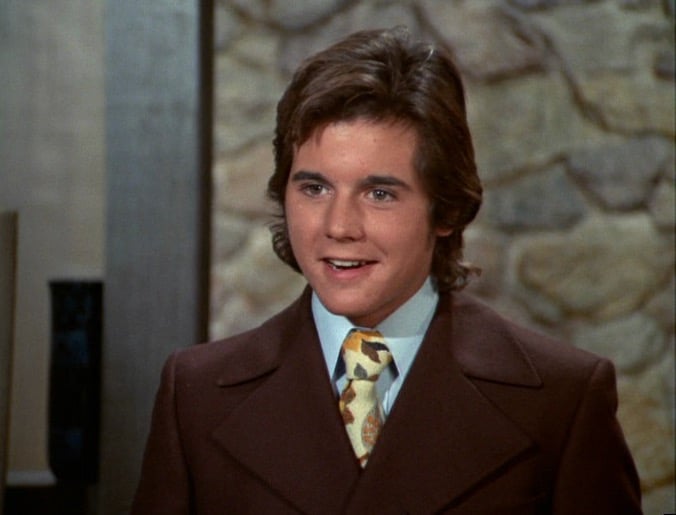
On the show, Desi Jr. played himself and the eldest daughter, Marcia Brady, played an adoring fan. He starred in multiple episodes of the hit show.
53. Desi Brought the United States the Conga
According to The Los Angeles Times, Desi Arnaz was the first one to make the conga dance line popular in the United States.
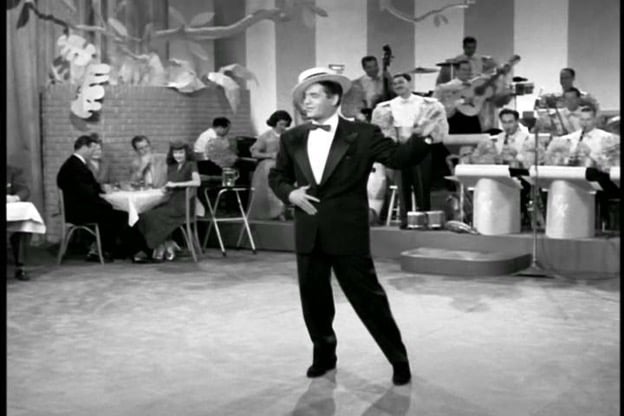
The 1980 song Conga by Miami Sound Machine celebrates the Cuban carnival dance which was made popular by Desi during his time on I Love Lucy.
54. Lucy Had Three Shows After ‘I Love Lucy’
Trying to recreate the success of I Love Lucy, Ball created The Lucy Show from 1962 to 1968 and then her very last show Here’s Lucy which ran from 1968 until 1974.
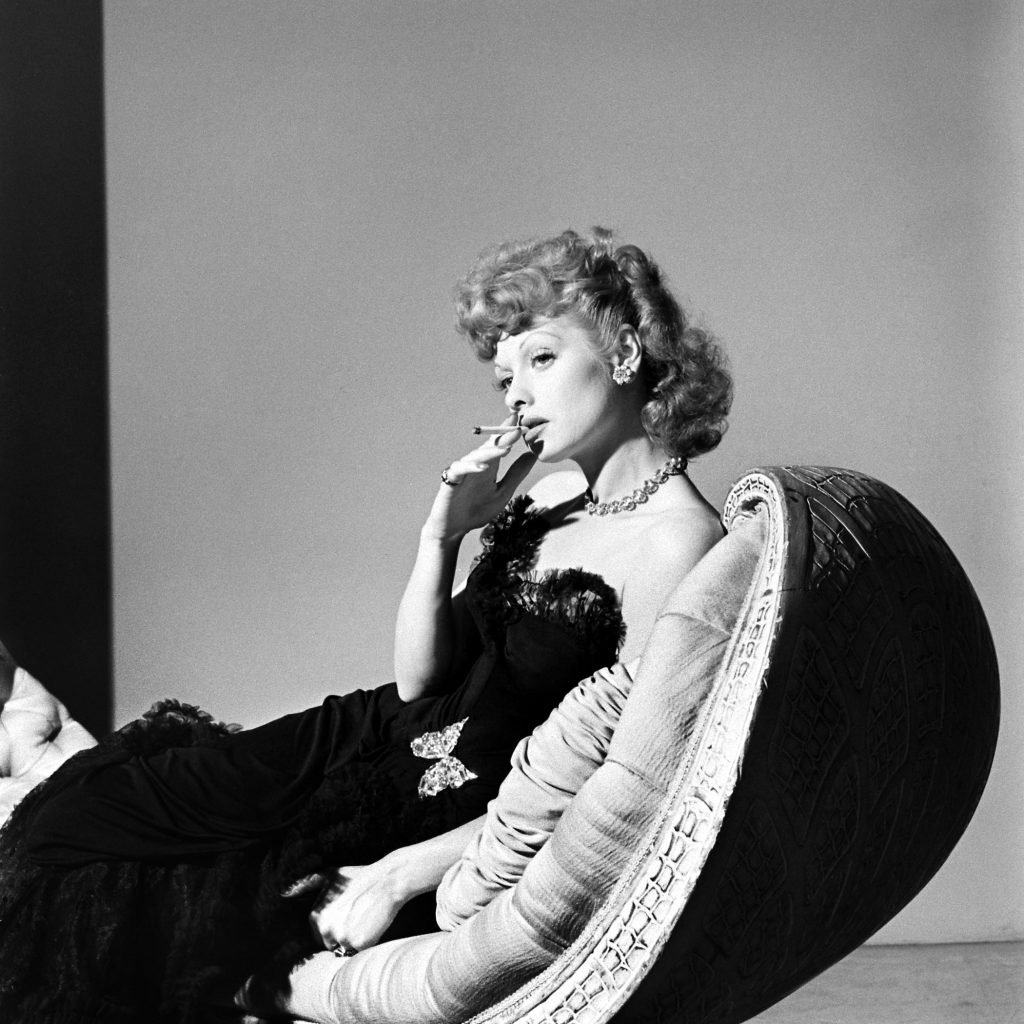
Of course, nothing could recreate the success she found on her first show, which was the biggest for the most sustained period of time.
55. Desi Was Insecure About His Height
Apparently, Desi didn’t have too much of an ego when it came to matters of the show. Afterall, his wife’s name was the namesake of the show, and he openly admitted that she was the star.
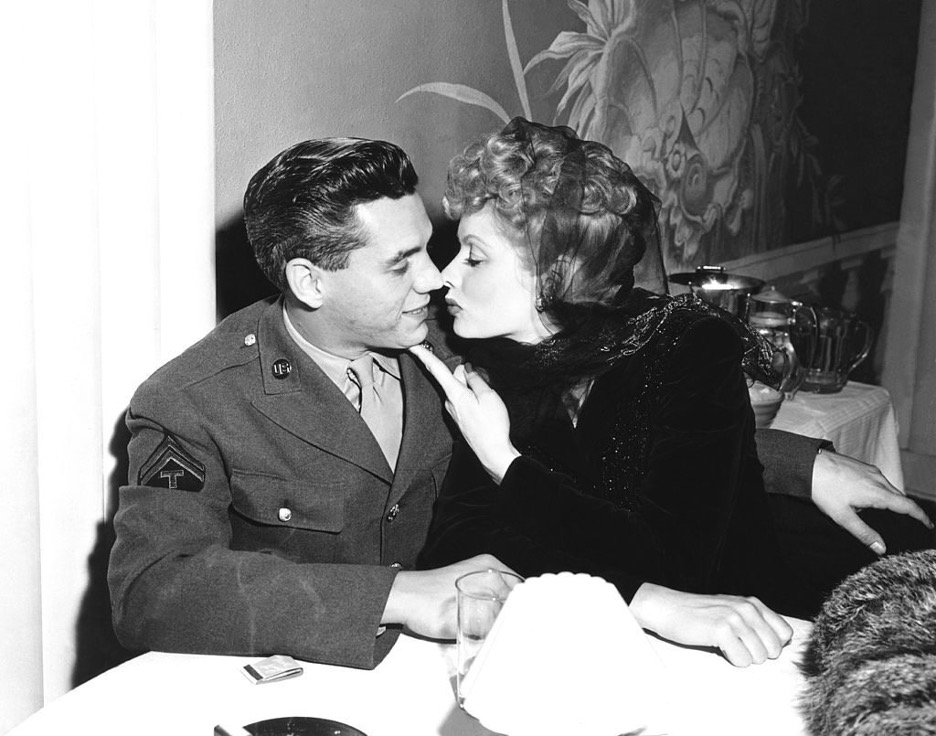
womenshealthmag
However, when it came to his height it was a different story. Desi allegedly struggled with the height difference between him and Lucy (he was slightly shorter) and wore lifts to compensate. He would also list his height as taller to biographers.
56. ‘I Love Lucy’ Won Five Emmys
I Love Lucy was able to garner 24 Emmy Award nominations during its time on air. Lucille Ball won two awards for her portrayal as the show’s title character. The show itself won 5 Emmy Awards.
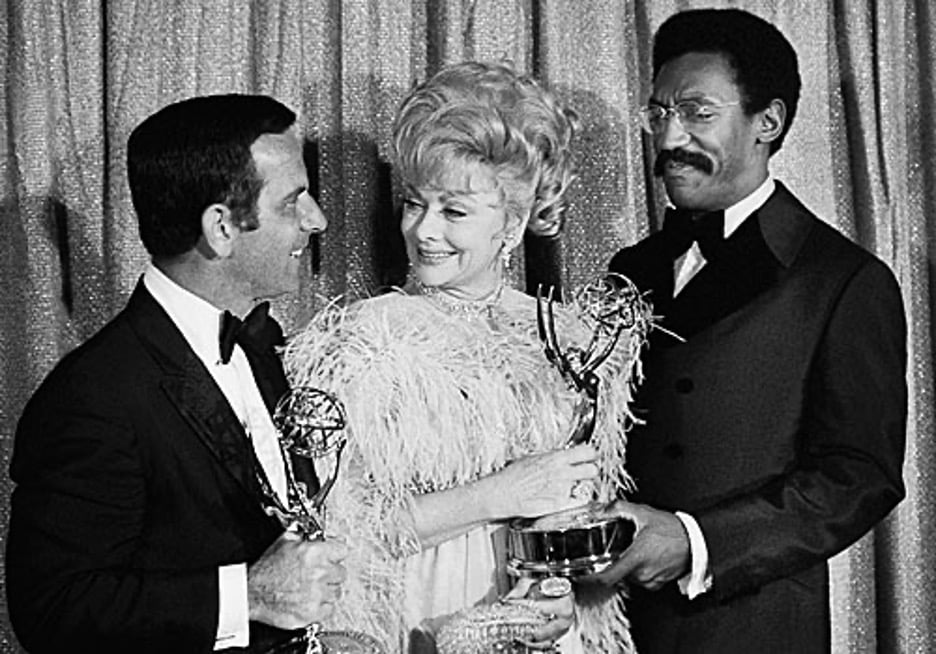
ccm.edu
Many fans feel that the cast and crew were robbed and that the show should have been awarded a higher amount of acclaim for its rampant success.
57. Lucy Didn’t Think She Was Funny
According to The Los Angeles Times, Lucy didn’t find herself all that funny and was exceedingly humble about her comedic success. Apparently she credited the writers and directors on the show for the comedic resonance that the viewers were seeing.
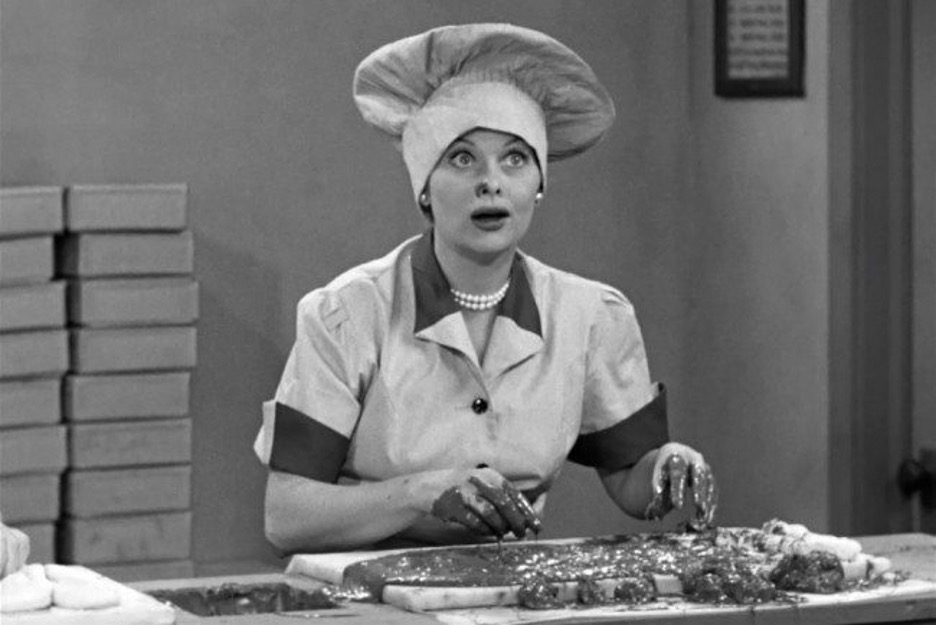
lukhome
What Lucy did concede was that she was indeed brave and was able to accomplish all that she could due to that bravery.
58. Lucille’s Mother Would Watch Her Film
Lucille’s mother, DeDe, was exceedingly proud of her daughter, and would come to each filming of an episode on I Love Lucy.
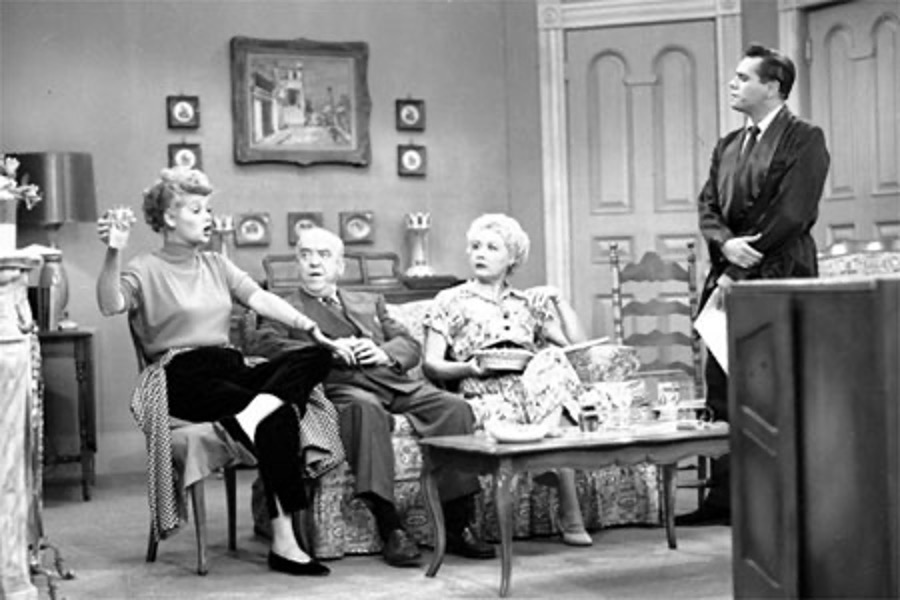
vouum.com
DeDe would sit in the studio audience and laugh along with the rest of the audience. The show pioneered the concept of filming in front of a live studio audience with multiple cameras.
59. Lucy Considered Betty White as Family
Lucille Ball was a decade older than Betty White when the two comedians met in the mid-1950s. A friendship blossomed between the two and deepened when they both got married and hung out together as a foursome.
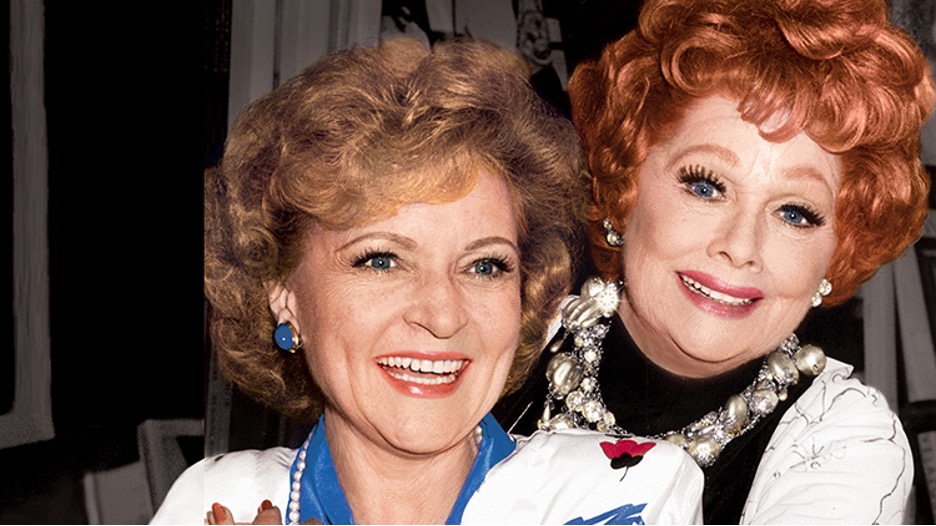
Ball and White considered themselves as family, and their friendship lasted for decades until Lucy’s death. Betty White died in 2021.
60. The Show Featured Cigarettes For Advertising Revenue
Initially, the show had a lot of difficulties getting advertisers and the finances. That all changed, when they reached a deal with Philip Morris, who agreed to sponsor the series. Part of the deal was Lucille Ball and Desi Arnaz make commercials for the company.
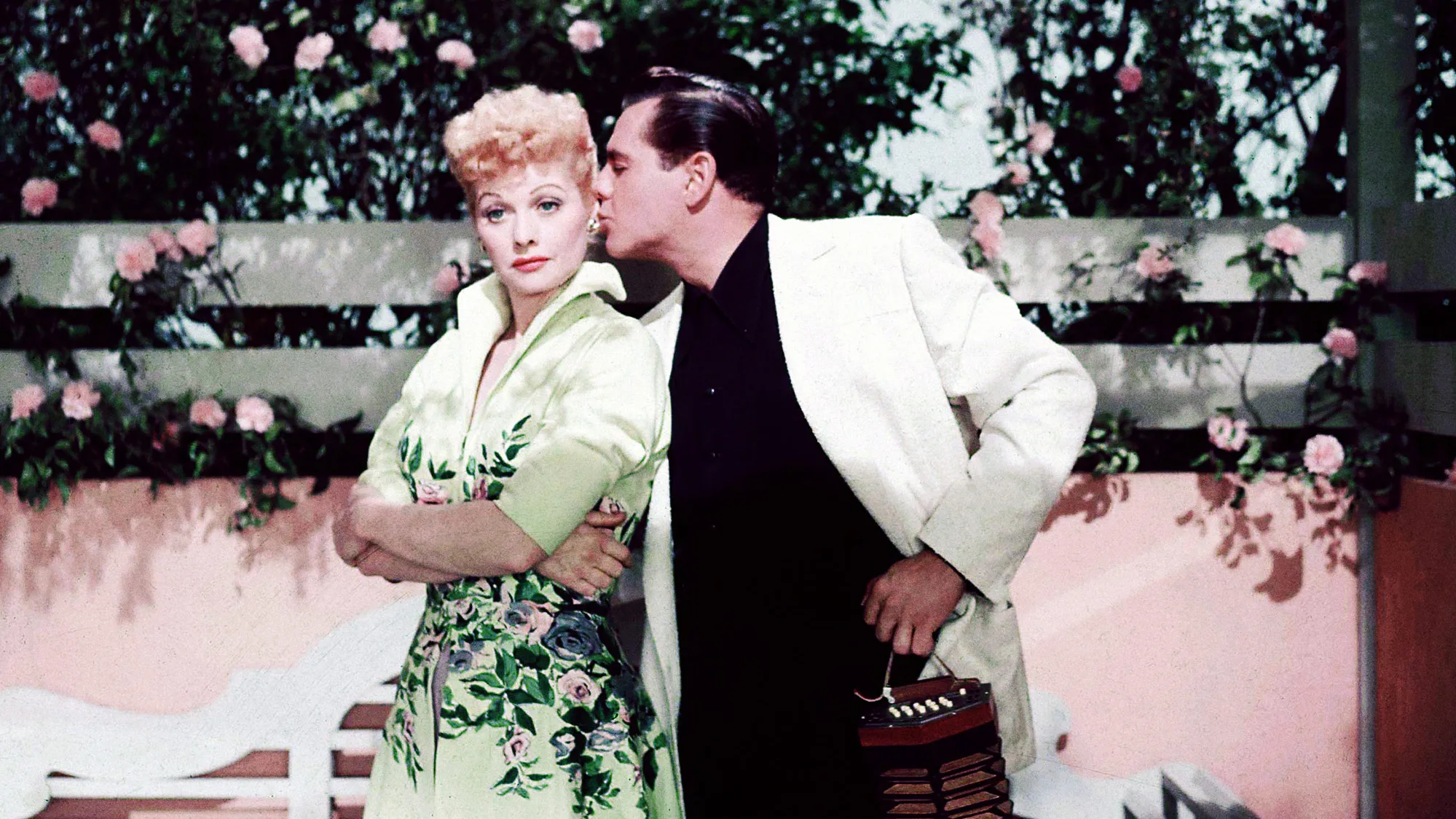
If you notice, the show features cigarettes in almost every scene, this is why. Smoking was associated with being a part of the “good life” that the shows premise largely fell on.
61. CBS Was Hesitant to Add James Frawley to the Cast
CBS had a lot of hesitation about casting William Frawley as Fred, after Frawley reached out to Lucille and Desi. Apparently, their first choice had not worked out and he was interested. The other choices that Lucy wanted were either busy or too unaffordable.
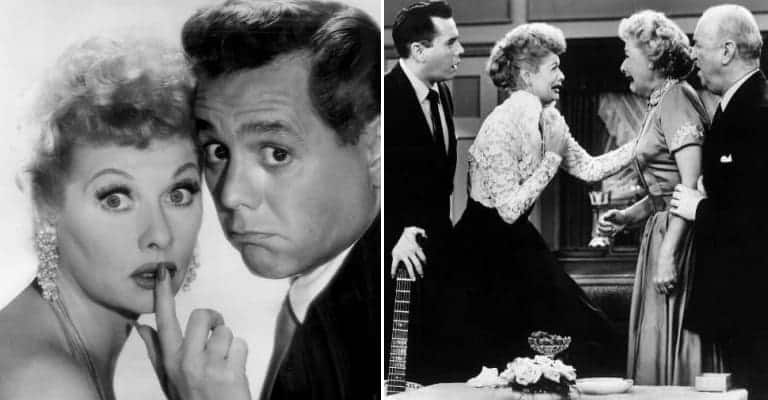
historycollection
CBS felt like Frawley was an unreliable alcoholic, however Lucy and Desi advocated for him, and the producer Jess Oppenheimer insisted as well.
62. They Used Desi’s Accent for Comedic Element
The show decided to use Ricky’s accent as a comedic element on the show, but with one rule. Only one person had permission to comment on it and that was his on and off screen wife, Lucille Ball.
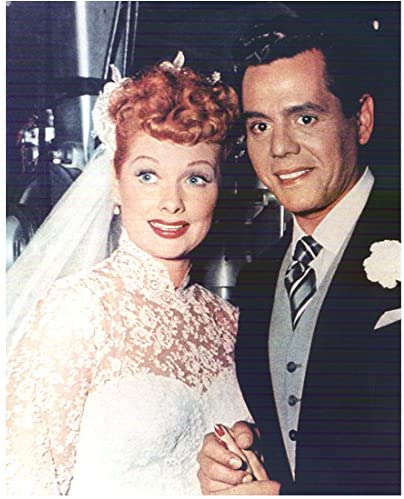
weebly.com
The show’s producer said that Desi was a “good sport” when it came to jokes about his accent, as long as only Lucy delivered them. The studio also took the audience into account as they did not like to see anyone else make fun of Ricky.
63. Lucy Was Afraid She’d Forget Her Lines
Lucy was terrified of forgetting her lines or botching them, which could make delivering her comedic timing harder. Lucy was not one to improvise, she liked to memorize her lines.
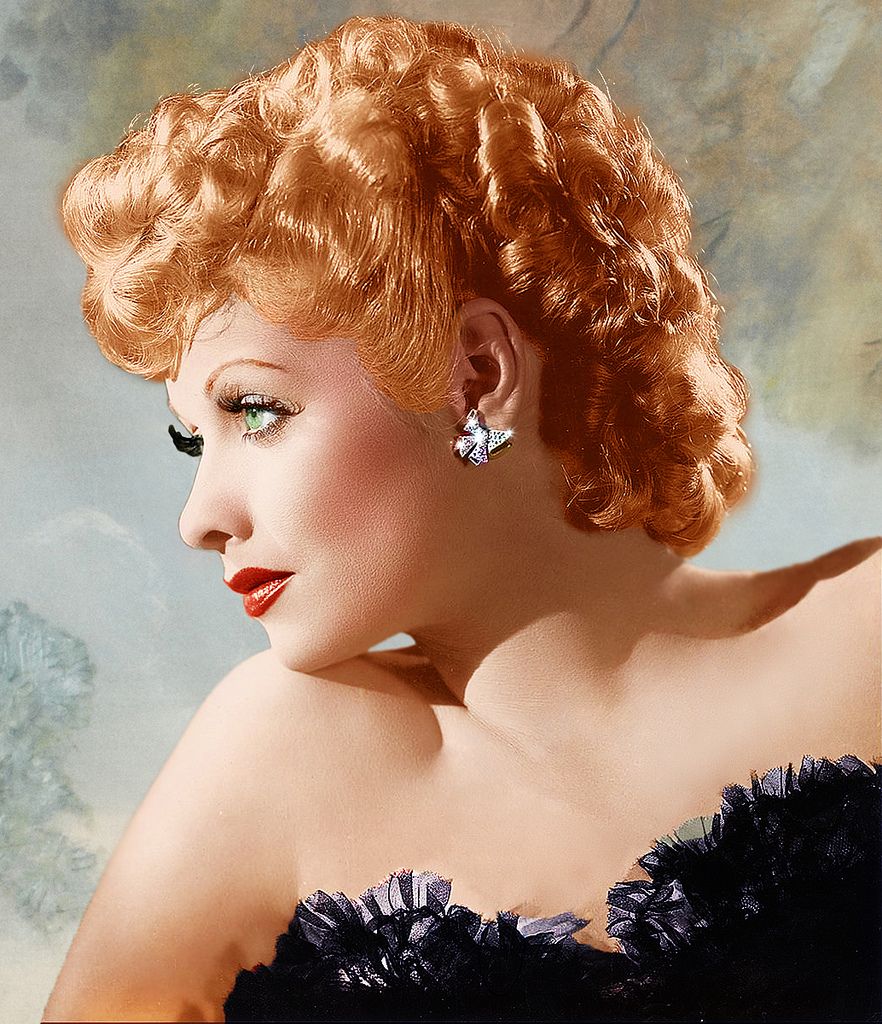
piccsr.com
This fear can most be seen in the episode “Lucy Does a Commercial.” In the episode, Lucu becomes an advertising woman for a medicine and is supposed to get drunk. Lucy therefore had to memorize garbled lines, which she struggled with.
64. The Show Invented the Concept of Reruns
When Lucy gave birth and was recovering in 1953, the studio had to come up with a solution to keep the show on the air. Philip Morris wanted the show to be aired weekly and thus the idea of episodes replaying was pitched and put into motion.
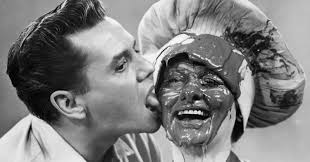
thewrap.com
This idea not only boosted the show’s ;longevity, but also allowed Desi and Lucy to take care of their new child. When they later sold the episodes (thereby inventing the ideas of syndication and reruns) they profited $5 million.
65. Lucille and Desi Refused to Move to New York for the Show
Once the show got funding, the question became whether or not Lucille and Desi would move to New York City from Los Angeles, as the show was supposed to take place in New York. It seemed natural to shoot there.
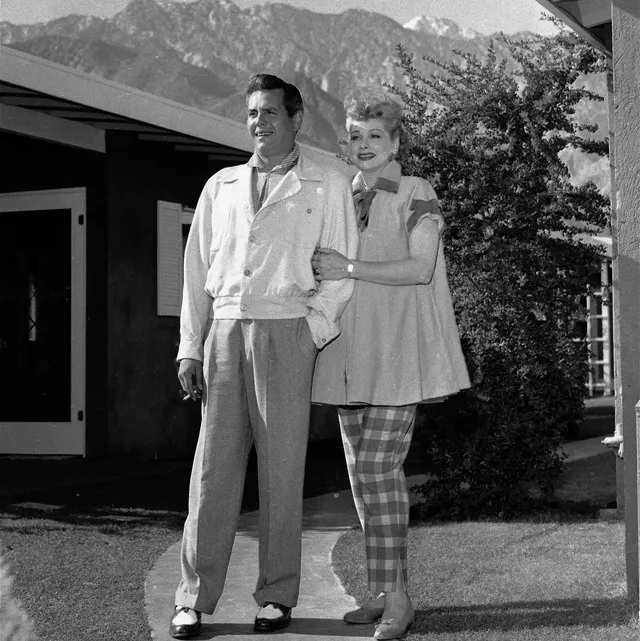
But the Arnazes wanted to stay in Los Angeles at the epicenter of the entertainment industry. CBS came up with a solution that changed the television entirely.
66. A New Camera System
CBS and the Aranzes decided to use a new technique that was first used by Jerry Fairbanks. Fairbanks is also credited with developing the three-camera system as well. Al SImon took this and improved the system’s technology.
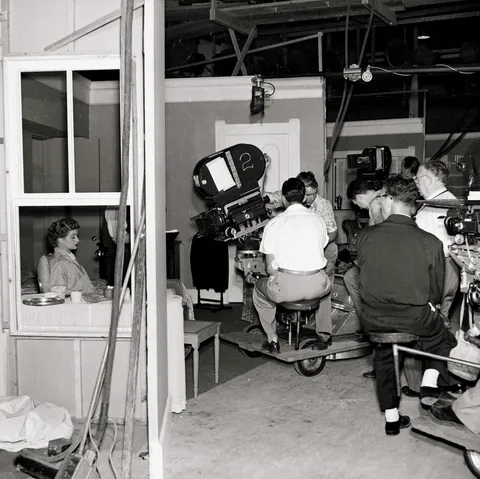
So, the Arnazes tapes the show live in Los Angeles and then sent high-quality 35mm-film footage to New York. At the time the standard was 16mm.
67. Desi Arnaz Allegedly Visited “Ladies of the Night” Often
Desi Arnaz reportedly had ties with Hollywood Pimp Scotty Bowers. Scotty Bowers wrote a book called Full Service: My Adventures in Hollywood and the Secret Sex Lives of the Stars. In the book he described Desi as having a “healthy heterosexual appetite” and a “sweet guy.”
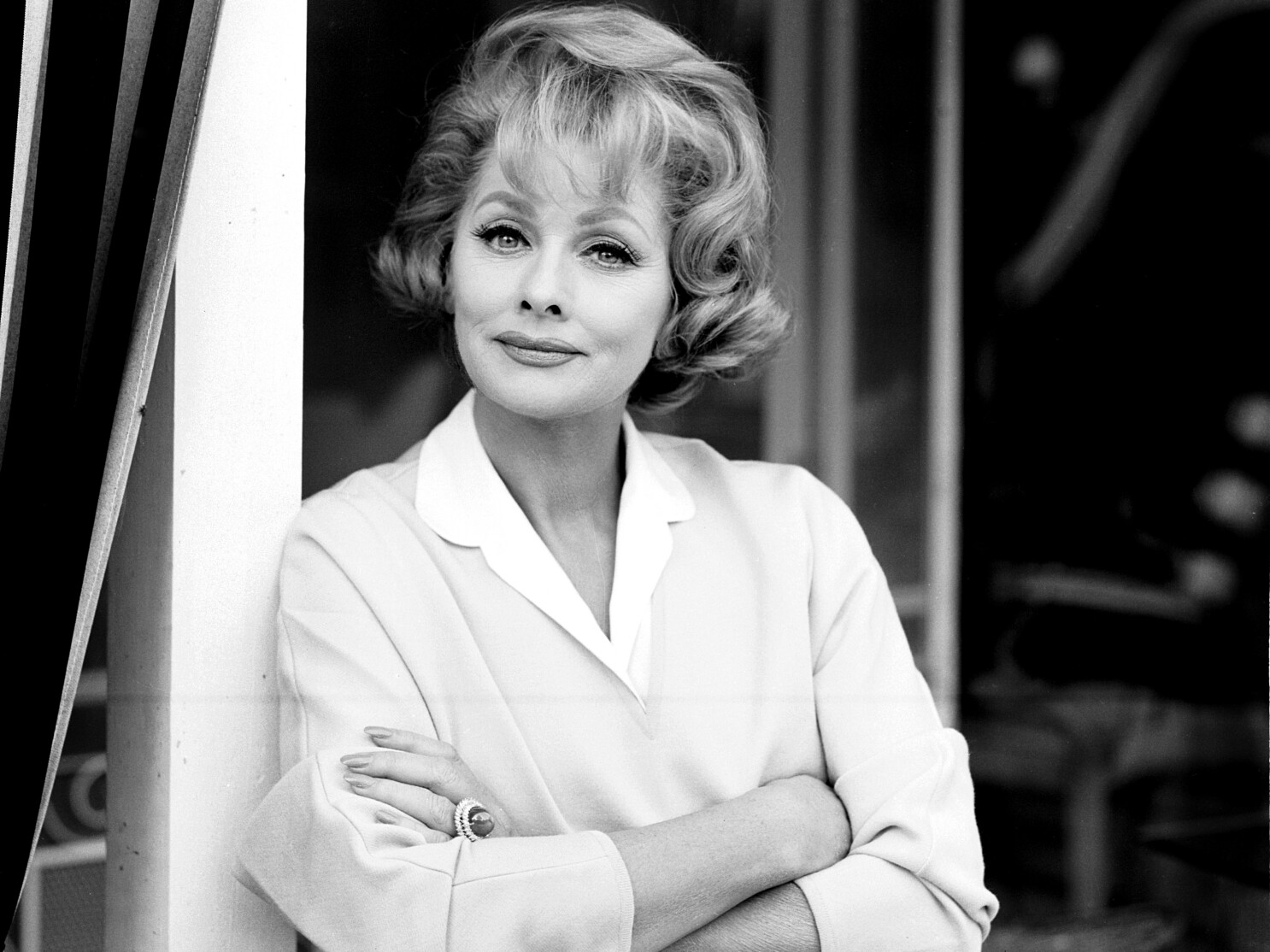
lucyfan.com
Lucille Ball apparently knew about her husband’s friendship with Scotty Bowers and confronted him at a party one night. In the book, she is said to have told Scotty to “stop pimping for her husband.”
68. The Word “Pregnant” Was Banned From the Show
While the real life Lucille Ball and the fictional Lucy Ricardo were both pregnant, the show worked to incorporate it as well as they could into the show. However, the word “pregnant” was not allowed to actually be said.
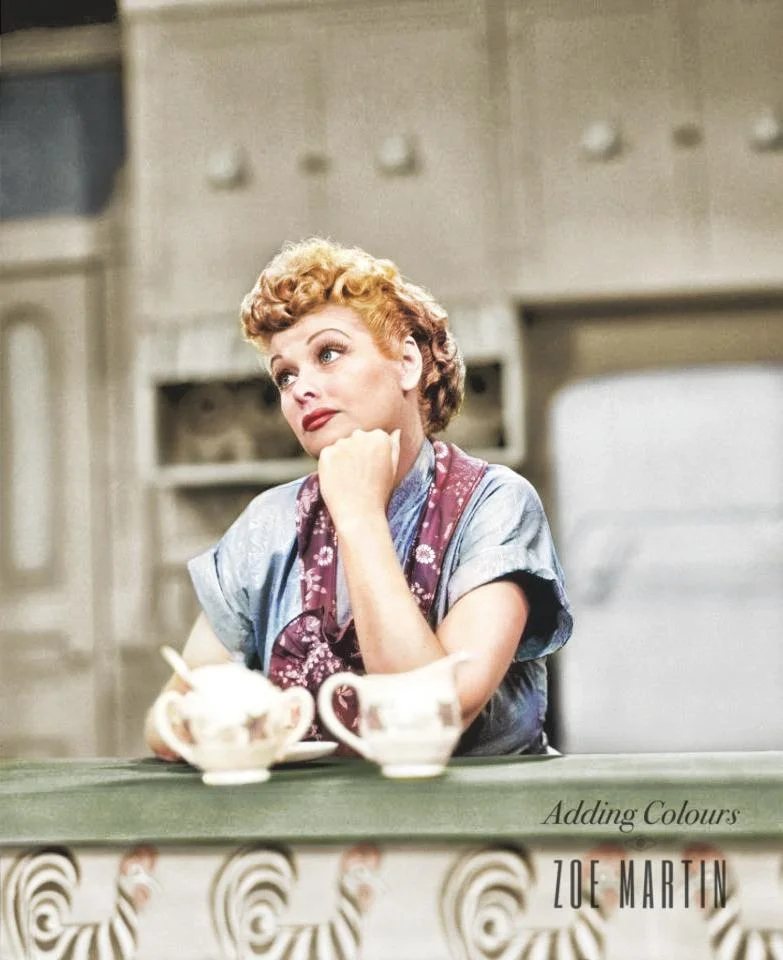
Instead, they were only allowed to allude to pregnancy with euphemisms and synonyms. It is strange to see now, as it is commonplace, but such was the way of the world in the fifties.
69. “Pregnant” Was Considered Too Suggestive
As stated before, when I Love Lucy was on air, it was not done to have a pregnant woman on the screen. Lucy was only the second person to ever do it. The Code of Practices for Television Broadcasters prohibited anything sexually suggestive on air, and being pregnant confirmed that the couple had been intimate.
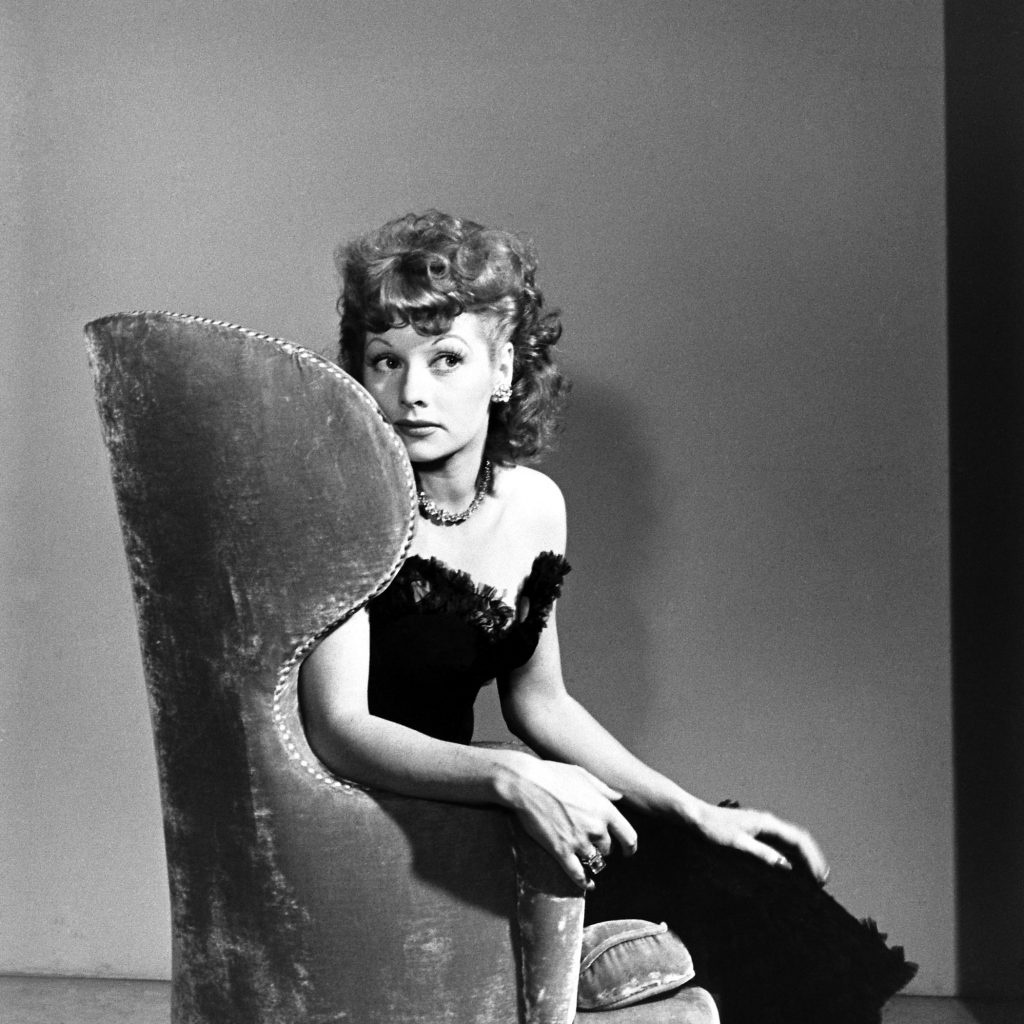
imgur
This is another reason why the couple was often shot sleeping in separate beds for much of the series. Instead they said words like “expecting” and “with child.”
